- Translated Information
- Ask a Question
- Services Near Me
- Immigration & Citizenship
- Legal Services

Life Events
Can i get married in canada on a visitor visa.
Yes, it is possible to get married in Canada as a visitor or on a temporary resident visa. You don't need to be a Canadian citizen or permanent resident.
You will still need to meet the requirements of the province you choose to get married. Each province has its own requirements.
Getting Married in Ontario
If you choose to get married in Ontario, you will both need to meet the eligibility requirements of the province. They are:
- You both must be at least 16 years old . If you are under 18 years old you can get married but you must have written consent from your parents or legal guardians.
- You may marry someone of the same or opposite sex . Same-sex marriages (marriages between 2 men or 2 women) have been legal in Ontario since 2003 and 2005 for all of Canada.
- You cannot be close relatives by blood or adoption (grandparent-grandchild, parent-child, brothers-sisters).
- You both must be physically present to be married . You cannot get married by telephone, webcam or by proxy.
- You both must not be currently married. If you are divorced, you must show proof of your divorce when you apply for a marriage licence.
To get married in Canada, you will still need to get a marriage license and certificate.
How do I get a Marriage Licence?
You can apply for a marriage licence wherever you wish to get married through a municipal office or city hall . In Ontario, you can follow these steps to get a marriage licence . You will need two government-issued identification documents for each person getting married. This includes the original copy of a:
- Valid passport (from your country of origin)
- Government issued birth certificate (from your country of origin)
- Record of immigrant landing (if you and or your partner are permanent residents)
- Valid driver’s license (from your country of origin)
- Citizenship card (from any country of origin)
How do I get a Marriage Certificate?
Once you are married, you will be required to get a marriage certificate. See our article on how to get a marriage certificate in Ontario.
For More Information
Who can get Married In Ontario? - Read about the requirements you must meet to get married in Ontario from the Settlement.org website.
Getting Married - Get the government documents you need if you plan to get married in Ontario, from the Ontario.ca government website.
Related Articles
- How do I get a marriage licence?
- Will the Canadian government recognize my foreign marriage?
- How do I change my name after I get married?
- Death and Funerals
- Service Animals and Pets
- Adoption & Foster Care
- BC ENTREPRENEUR
- Points calculator
Marriage in Canada: A Comprehensive Guide for Tourists
- Live in Canada

The Ultimate Guide to Creating a Startup Business Plan

All About Quebec Immigrant Investor Program (QIIP)2023
Benefits of marriage in canada, marriage requirements in canada.

Marriage is a sacred bond that unites two people in a lifelong commitment. Marriage in Canada is not just a personal choice; it has legal, social, and economic consequences. Suppose you plan to get married in Canada on a tourist visa. In that case, this article will give you all the information about marriage laws, requirements, benefits, and challenges in Canada.
Table of Contents
Explanation Of Marriage In Canada
Marriage is a legal and social union between two people that creates family ties and obligations. Marriage in Canada is governed by federal and provincial laws that vary by jurisdiction and type of marriage Importance of Marriage in Canada.
Marriage is an important Canadian institution that provides legal, social, and economic benefits to couples and families. Marriage is recognized as a fundamental right and freedom in the Canadian Charter of Rights and Freedoms and is protected by federal and provincial laws.
Importance Of Marriage In Canada
Federal and provincial laws govern marriage in Canada . The legal age for marriage in Canada s 18, but in some provinces and territories, children under 16 can marry with parental consent. It should be noted that forced marriage and child marriage are illegal in Cana a. In addition to the age limit, there are other legal requirements for marriage in Canada .
Both parties must be legally married, meaning they are not currently married to anyone else and must not be in an intimate relationship p. Couples must also obtain a marriage license from the province or territory where they plan to marry.
Each province and territory has its marriage laws, which may differ in requirements and procedures. For example, some areas may require a waiting period between obtaining a marriage license and the wedding, while others may n t. In addition, some areas may need couples to take marriage preparation courses before getting married.
Couples should research and understand the marriage laws of the province or territory they are considering marriage to ensure they meet all legal requirements. Non-compliance with the Marriage Act can result in the annulment of the wedding.
If you want to get married in Canada, you must meet the following requirements:
- You and your partner must be able to marry under Canadian law.
- You must obtain a marriage license from the province or territory you plan to marry.
- An authorized official must perform the initiation ceremony.
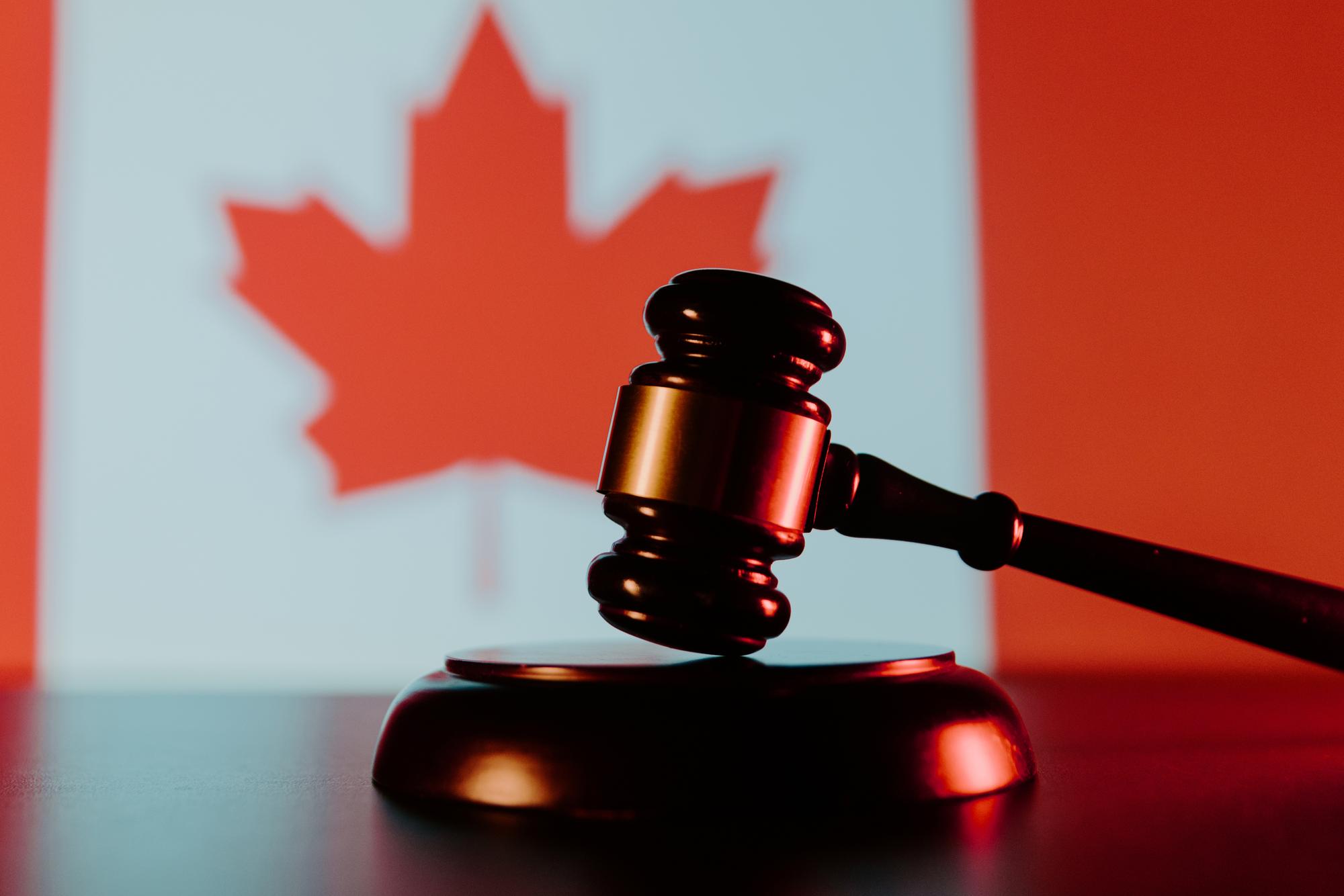
Getting married in Canada offers couples many benefits, both legal and personal. Some of the main advantages of a Canadian marriage include:
- Legal recognition: Marriage is a legally recognized union in Canada that offers legal protection and benefits to married couples.
- Spousal support: In the event of a divorce or separation, married couples can receive spousal support, which can help ensure financial stability.
- Property rights: In Canada, married couples have property rights that protect their assets during separation or divorce.
- Tax benefits: Married couples living in Canada can receive certain tax benefits, such as the marital tax credit and the ability to split income. Immigration benefits: If one spouse is not Canadian, the marriage may offer citizenship or permanent residency.
- Emotional support: Marriage can provide couples emotional support and stability, leading to better mental health and overall well-being.
- Social Recognition: Marriage is a socially recognized union that provides a sense of community, belonging, and acceptance.
Types Of Marriage Recognized In Canada
In Canada, two types of marriage are recognized by law:
- Civil Marriage: A Civil Marriage is a legally binding union performed by a licensed civil servant and registered with the government. Civil marriage is available to all married couples regardless of religious or cultural background.
- Religious marriage: a godly marriage is solemnized by a religious official and registered by the government. God’s marriage is recognized by law only if it meets the legal requirements of a civil marriage.
Marriage Laws In Canada
Marriage is a legal contract in Canada governed by federal and provincial laws. Same-sex marriage has been legal in Canada since 20 5. However, marriage laws can vary by province or territory, so it’s essential to check the specific requirements and regulations of the province or territory where you plan to get married.
Marriage In Canada With A Tourist Visa
If you are a foreigner and want to get married in Canada on a tourist visa, you can do so as long as you meet the Canadian marriage requirements. However, remember that a tourist visa does not entitle you to work or study in Canada, so you must return home after your visit.
If you want to get married in Canada on a tourist visa, you must obtain a marriage license, as mentioned.
You must also provide proof of your immigration status in Canada, such as your passport and visitor document. You may also be asked to give statutory notice of your intention to Mary. This is a legal document that says you intend to get married in Canada and that you are not breaking any immigration laws.

Divorce And Annulment In Canada
If you are married in Canada and want a divorce or annulment, you must go through the legal process. In Canada, divorce is a federal law governed by the Divorce Act. To get a divorce in Canada, you must meet certain conditions, such as being separated from your spouse for at least a year or proving that your spouse has committed adultery, abuse, or some other form of marital misconduct.
On the other hand, annulment is the legal process of declaring the marriage null and void. To get an annulment in Canada, you must prove that your marriage was invalid in the first place, for example, if one spouse was married at the time of the marriage or was not mentally capable of consenting to the marriage.
Final words
In summary, marriage in Canada is a legally binding union between two people recognized by the government. Whether a couple wishes to marry on a tourist visa or a Canadian citizen, the marriage must meet the legal requirements.
For a marriage to be legally recognized, a couple must understand the Canadian Marriage Act and the legal requirements for marriage. In addition, couples should seek legal advice if they have questions or concerns about their marriage, especially if they wish to marry on a tourist visa.
By understanding and following Canadian marriage laws, couples can ensure that their marriage is legally recognized and that they can enjoy all the benefits and responsibilities that come with marriage. You can contact our colleagues at cianimmigration for advice.
Frequently asked questions
Can I get married in Canada on a tourist visa?
Yes, you can get married in Canada on a tourist visa if you meet Canada’s marriage requirements and provide proof of your immigration status.
What are the residency requirements to get married in Canada?
There are no residency requirements for marriage in Canada . However, you must obtain a marriage license from the province or territory where you plan to marry and comply with the marriage laws of that jurisdiction.
What are the legal requirements to get married in Canada?
To get married in Canada, you must be at least 18 years old, currently single, and not related to your future spouse by blood. You must also obtain a marriage license and comply with the marriage laws of the province or territory in which you plan to marry.
How do I apply for a marriage license in Canada?
To apply for a marriage license in Canada, visit the local or local registrar’s office in the province or territory where you plan to marry. You must show identification, such as a passport or birth certificate, and pay the fee.
What are the divorce procedures in Canada?
To get a divorce in Canada, you must meet specific eligibility criteria, such as being separated from your spouse for at least one year. The application for divorce must be filed with the court, and attend the hearing if necessary. The court then issues a certificate of divorce, legally ending the marriage.
Leave a Reply Cancel reply
Your email address will not be published. Required fields are marked *
Save my name, email, and website in this browser for the next time I comment.

- Forums New posts Search Forums
- Members Registered members Current visitors Recent Activity
- Free Assessment
Getting married in canada as a tourist visa
- Thread starter Fvp09
- Start date Jul 20, 2018
Hi i need you advice please, Me and my boyfriend are living here in uae for 3 years while his paper in on process for permanent residency in canada together with her mother(his sponsor under family category), his mother is living in alberta. And now And the embassy/cic will issue his visa and askin him to submit his original passport in the nearest VAC and they said that this will not take too much time for this to be complete. I hope you understand me that We are not a fan of LDR relationships. And i read/researched that i have 2 options. 1.) Apply for a visit visa to canada when he is already there, then get married there and apply for my permanent residence. (by this option is really what i want but i heard that they will immidiately reject my application since i am visiting my boyfriend, but for the money in bank account will not be a big issue, since we have business here in uae, and 2ndly i dont know if this is possible to get married in canada and process permanent residency since i am on tourist visa) 2.) wait for his PR card we both go to philippines, get married, he will come back to canada , i will come back to uae to process my paper. (And in this option, i heard that it will take time, since he still needs a work atleast a year in order to prove that he can support me financiallly, and then another 1 year again for the processing of paper) but i told you, we are not a fan of LdR. Please help me what to do. Thank you!
Fvp09 said: Hi i need you advice please, Me and my boyfriend are living here in uae for 3 years while his paper in on process for permanent residency in canada together with her mother(his sponsor under family category), his mother is living in alberta. And now And the embassy/cic will issue his visa and askin him to submit his original passport in the nearest VAC and they said that this will not take too much time for this to be complete. I hope you understand me that We are not a fan of LDR relationships. And i read/researched that i have 2 options. 1.) Apply for a visit visa to canada when he is already there, then get married there and apply for my permanent residence. (by this option is really what i want but i heard that they will immidiately reject my application since i am visiting my boyfriend, but for the money in bank account will not be a big issue, since we have business here in uae, and 2ndly i dont know if this is possible to get married in canada and process permanent residency since i am on tourist visa) 2.) wait for his PR card we both go to philippines, get married, he will come back to canada , i will come back to uae to process my paper. (And in this option, i heard that it will take time, since he still needs a work atleast a year in order to prove that he can support me financiallly, and then another 1 year again for the processing of paper) but i told you, we are not a fan of LdR. Please help me what to do. Thank you! Click to expand...
scylla said: Have you lived together for three years - or have you at least lived together for one year straight? When you say that he is being sponsored by his mother, do you mean that he is a dependent in her PR application or something else? Click to expand...
Fvp09 said: Hi, 1st, we are together for 6 years road to 7years this november, and we are living together for 6 years. 3 years from philippines and 3 years here in uae. Yes he is under dependent. Because that time they started processing it when he is still 19 years old and he is 25 now. Click to expand...
scylla said: OK - then you have a few problems. The first problem is that your boyfriend is no longer a dependent and he cannot get PR through his mother's application. To remain as her dependent, he cannot get married and cannot enter into a common law relationship until AFTER he lands and becomes a PR (you are classified as common law by CIC once you have lived together for at least one full year). Since the two of you are in a common law relationship, he not longer meets the requirements to be included in his mother's application as a dependent. If he lies and continues to have himself included in her application, he will be engaging in immigration fraud (which is a crime). This means that at any point in the future if CIC finds out about this fraud, they could revoke his PR status or even citizenship. Also, if he goes ahead with the fraud and obtains PR status through his mother, it will be impossible for him to ever sponsor you - even once you are married. If he tries, it will be very clear through background / security checks that you were common law before he became a PR. This will result in your sponsorship application being refused and there's a good chance CIC will also move to revoke his PR status. What your boyfriend should do is remove himself from his mother's application. Again, he no longer meets the requirement to be included as a dependent. The two of you should then work to qualify for PR as a couple through an economic immigration stream like Express Entry. Click to expand...
Fvp09 said: I don’t understand, even he have the visa stamped in his passport they will revoke his PR? And we are not yet married, but we are planning to get married after he go to canada and after he got his PR card. Click to expand...
scylla said: The issue is that he no longer meets the requirements to be a dependent in his mother's application. To be classified as a dependent, he must remain unmarried and he cannot enter into a common law relationship. However he IS in a common law relationship since he has been living with you for six year. It doesn't matter if he already has a visa stamp. Again, he no longer meets the requirements to receive PR through his mother. He should asked to be dropped from her PR application. If he does not do this and he goes ahead and gets PR through his mother - then he is committing fraud. Yes - this means CIC could revoke his status in Canada at any time in the future. It also means he will never be able to sponsor you for PR (even if you get married). Once again, the ONLY legal option is for your boyfriend to inform CIC that he is no longer a dependent in his mother's application - and for the two of you to qualify for PR on your own through an economic immigration program like Express Entry. If you do anything other than this, you are going to have massive problems and will be engaging in immigration fraud. Click to expand...
Fvp09 said: Im sorry, what if we live together in the past in the philippines and we didnt live here together in uae since it is not allowed here to stay together if not married. Click to expand...
scylla said: This doesn't change anything. You lived together for more than a year and became common law. Your boyfriend is no longer entitled to obtain PR as part of his mother's application. He no longer meets the criteria to be classified as a dependent. Click to expand...
Fvp09 said: How will the immigration will identify that we are under common law partners? Click to expand...
scylla said: You'll have to provide your addresses for the last decade as part of the application. This information will be verified through employment records, police checks and background checks. Based on your address history, CIC will figure out that you've lived together for more than a year before he became a PR. It sounds to me like you want to move ahead as planned - ignoring the fact this is fraud. I won't be posting further. Click to expand...
Fvp09 said: Thank you very much i will inform him about this so it will not result for any further problems. Click to expand...
let me explain simply lets say he will get trough ok? So far so good. He will come to Canada, activates his PR. ok again (since until that point you are not visible) And then he tries to sponsor you. If he goes for common law sponsorship, that would right away reveal that he lied on his PR application. If he goes for marriage, then at the start all would look good. But they will ask among other things your address you lived in past 10 years. His addresses as well. They will ask details about your relationship (and yes if they feel so they can try to approach your previous landlords for example). But all that is done to see if the marriage is genuine. The problem is that during that there is really high chance that they will discover the truth (that you live together for some time already). Now what an office can do, they can check his status including how he immigrated. So that is where the problem will be. And to avoid it you would have to lie and lie again. But problem of all of that is that in the middle of all those lies you can be caught off guard easily. Hence the risks to discover are big.

Getting Married in Canada: A Guide to Legal Requirements and Documentation

(416) 662-1387
Reverend Jason Chellew - [email protected]
Reverend Michael Andrew - [email protected]
For general inquiries please email [email protected]

- Chinese Astrology
- Long Distance Relationships
- Love Compatibility
- Relationship Issues
- Wealthy Dating
You are here
Getting married on a tourist visa in canada.

Canada has some of the most emancipated laws when it comes to marriage and divorce. It was the first country in North America and the fourth in the world to legalize same sex marriages across the nation. Apart from this, Canada offers a high quality of life which attracts many foreign partners in marital relationships with Canadian citizens. So if you and your sweetheart are planning to getting married in Canada on a tourist visa, here are a few things to keep in mind. Who can get married in Canada? Getting married in Canada is an option available to any Canadian citizen or permanent resident who wants to marry a foreign partner. You can get married in Canada if you or your partner is from another country. The person – you or your partner – coming from abroad can arrive in Canada on a temporary visa like a visitor visa and then you can get married in the country. In fact, neither of you need to be a Canadian citizen or permanent resident to get married in Canada and you both can arrive here on visitor visas to get married. This is something that many same-sex couples do since Canada is one of the few countries of the world where same-sex marriages are legally performed. Single-entry visitor visas are normally valid for three months, and multiple-entry visas may be valid for longer periods but ultimately their validity will be determined by the validity of passports of the would-be visitors. However whoever is coming to Canada – you, your partner or both - will need to satisfy all of the immigration rules and only then the person(s) will qualify for a tourist visa without which one cannot enter the country. Marriage License Even though you can get married on a tourist visa in Canada, you still need to be go through the paperwork associated with getting the marriage license and certificate. The first step towards this would be applying for a marriage license in the area where you intend to marry in Canada. You can apply at any Registry Services office or in some cities like Toronto it can be done online. A Canadian marriage license is valid for 90 days from the date of issue. In order to sign the application to marry, you and your partner will have to go together the Registry office along with required documents which if in order your marriage license will be issued that very day.
Among the documentation required for marriage license is one valid piece of ID to prove the person’s identity which may be a Canadian passport, a foreign passport, birth certificate , valid driver’s license or a citizenship card from any country. The ID must be an original copy. You and your partner will also have to supply the full names of your parents including the mothers’ maiden names and all parents place of birth. An important part of getting the documentation right is to see whether you and your partner are eligible to marry under Canadian law. For this you and your partner need to be single and free to marry as well as above eighteen years of age. If either of you have been widowed you must provide the death certificate of the former spouse and the marriage certificate, both of which need to be written in English or French or translated and signed by a professional translator who must also swear an affidavit to confirm the authenticity. Things become slightly more complicated in case either of you are divorced. If your or your partner’s divorce took place in Canada, the original copy of your Divorce Decree or a court-certified copy from the court where the divorce was granted must be supplied. If you or your partner were divorced outside Canada, you would need to get an endorsement from the Minister of Government Services before the Registrar will issue the marriage license. The marriage certificate Once you get the marriage license, you can get on with arranging your wedding ceremony, which can be religious or civil. If you decide on a religious ceremony you may have to allow for banns to be published. Wherever you marry you will need two witnesses aged 18 or over. At your marriage ceremony, the minister or marriage commissioner presiding over the wedding will fill out the marriage registration forms, which are then recorded at the Division of Vital Statistics. You may be given a Statement of Marriage after the ceremony which will function as a temporary document to prove you are married. To get your marriage certificate, you will have to apply to the Division of Vital Statistics. Staying on While it is possible to get married on a visitor visa in Canada, in order to stay on, the alien vistor(s) will have to submit an application for legal immigration. If you are the overseas partner and you are getting married to a Canadian citizen or resident, then you can apply for spousal visa while your Canadian partner will also have to apply for spousal sponsorship. You can do all this after getting married in Canada on a visitor visa. However if you apply from within Canada, you may not appeal any negative decisions made on your case by Citizenship and Immigration Canada. Their decision would be final and you would have to leave Canada as soon as your visitor visa expires. Another option is to come back to your home country after getting married in Canada and then apply for permanent residence in Canada. This in turn will require its own set of documents, forms and attestations all of which you can download from the Canadian government immigration site 1 or have your Canadian partner send them over to you. Apart from application for permanent residence, you will also need to fill out the forms specific to your region. After you have filled out all the sponsorship, immigration and region specific forms, you need to send them to you Canadian partner with the supporting documents to be processed at CIC. Thus while it is legally possible to get married on a tourist visa in Canada, staying on is an entirely different matter. Canada has some of the toughest immigration laws and if you don’t fulfill all the requirements in the category you are applying – like spousal visa or professional merit – you may find yourself unable to live legally in the country. Reference:
- Citizenship and Immigration Canada - Application to Sponsor a Member of the Family Class
- Log in to post comments
Recommended Articles

Getting Married in UK on a Tourist Visa
Getting married on a tourist visa - australia and new zealand, getting married on a tourist visa in the us, marrying a canadian citizen or permanent resident - immigration aspects, marrying a us citizen or permanent resident - immigration aspects, marrying an australian citizen or permanent resident - immigration aspects, marrying a uk citizen or permanent resident - immigration aspects, mercury in the second house, 10 questions to ask your divorce lawyer, can homeopathy cure herpes.

Why do Single Women Like Married Men
Should you start a business with your lover or spouse .
Copyright 2002-2023 Quest Mercury Intermedia Private Limited. All Rights Reserved. Futurescopes participates in various affiliate marketing programs, which means we may get paid commissions on featured, recommended, suggested or reviewed products and services purchased through our links to external sites.
Dating and Relationships
- Dating Advice
- Gifts and Flowers
- Lesbian Dating
- Love and Sex
- Specialized Dating
- Get in touch
- Write for us
- Advertising
- Privacy Policy
- User Agreement
Astrology and Divination
- Daily Horoscopes
- Weekly Horoscopes
- Monthly Horoscopes
- Yearly Horoscopes
- Children and Child Birth
- Left and Right Hands
Zodiac Sign Insight
- Dating Men by Zodiac Sign
- Dating Women by Zodiac Sign
- Gifts for Women by Zodiac Sign
- Gifts for Men by Zodiac Sign
- Bosses by Zodiac Sign
- Employees by Zodiac Sign
- Children by Zodiac Sign
- Meet our partners
- Advertise with us
How Canadians can sponsor their spouse from abroad

Most times Canadians need to be in Canada in order to sponsor their spouse or common-law partner for permanent residence, but not always.
Immigration, Refugees and Citizenship Canada (IRCC) allows Canadian citizens to apply to sponsor their spouses , common-law partners, dependent children and conjugal partners from abroad. However, they have to prove that they will move back to Canada when their sponsored family member becomes a permanent resident.
How they prove that they will move back to Canada depends on their individual circumstances and why they want to return. For example, if the couple wants to move to Canada for work they might support their sponsorship application with a confirmation of employment. If they are looking into daycares or schools they could also submit documents in support of their search. If the couple purchased a home they could send in the land title, or communications with realtors. Every case will be different, and the final outcome depends on the visa officer who is reviewing the file.
Although permanent residents are allowed to sponsor their spouse while in Canada, only people with citizenship status can start the spousal sponsorship process from abroad.
See if you're eligible to sponsor your spouse
Canada is still processing spousal sponsorship applications amid the coronavirus pandemic. Immigration Minister Marco Mendicino recently said that Canada is working to process 49,000 of these applications in 2020. The new immigration levels plan is calling for about 80,000 spouses, partners, and children to be sponsored per year over the next three years. IRCC aims to process new spousal sponsorship applications in 12 months.
Outland vs inland sponsorship
Spouses and common-law partners can either apply for Canadian immigration through Outland Sponsorship or Inland Sponsorship .
Canadians who are living abroad are eligible to sponsor their partner under the outland stream as long as they both intend to move to Canada.
Once applicants are in Canada, they can either apply for inland or outland sponsorship. Only inland applicants are eligible to get an open work permit to be able to work anywhere in Canada while they wait on their application to be finalized. They need to have a valid temporary status, such as a visitor's visa, in order to be eligible for the work permit.
During the coronavirus pandemic, immediate family members are exempt from travel restrictions. They do not need an essential reason to come to Canada as long as they are staying for at least 15 days and they complete the mandatory quarantine requirement. Depending on which country they are from, foreign national partners will need a valid Temporary Resident Visa (TRV) or Electronic Travel Authorization (eTA) in order to enter the country.
© CIC News All Rights Reserved. Visit CanadaVisa.com to discover your Canadian immigration options.
- Canadian citizen
- coronavirus
- coronavirus pandemic
- family class
- spousal sponsorship
- Spouse or Common-Law Partner in Canada Class
- Do you need Canadian immigration assistance? Contact the Contact Cohen Immigration Law firm by completing our form
- Send us your feedback or your non-legal assistance questions by emailing us at [email protected]
- Family Sponsorship

- Life in Canada

- Express Entry
- Citizenship
Language selection
- Français fr
Who can apply
On this page, who can get a visa, some people are not allowed to enter canada, minor children travelling to canada.
You must meet some basic requirements to get a visitor visa.
- have a valid travel document , like a passport
- be in good health
- have no criminal or immigration-related convictions
- convince an immigration officer that you have ties—such as a job, home, financial assets or family—that will take you back to your home country
- convince an immigration officer that you will leave Canada at the end of your visit
- The amount of money you will need depends on how long you will stay and if you will stay in a hotel, or with friends or relatives.
You may also need a medical exam and letter of invitation from someone who lives in Canada.
Check the list of documents you need based on your situation .
Some people are inadmissible to Canada, which means they are not allowed to enter the country. You can be inadmissible for several reasons, including being involved in:
- criminal activity
- human rights violations
- organized crime
You can also be inadmissible for security, health or financial reasons. Find out more about inadmissibility .
Make sure you know what to do if your minor children (children under the age of 18) will be travelling with you, with someone else, or alone.
Page details
Can foreigners get married in Canada?

Expert Info
- Log in or register to post comments
Expat Health Insurance
Cigna Global Health Insurance. Medical insurance specifically designed for expats. With Cigna, you won't have to rely on foreign public health care systems, which may not meet your needs. Cigna allows you to speak to a doctor on demand, for consultations or instant advice, wherever you are in the world. They also offer full cancer care across all levels of cover, and settle the cost of treatments directly with the provider. Get a quote from Cigna Global - 20% off
Aetna Aetna International, offering comprehensive global medical coverage, has a network of 1.3 million medical providers worldwide. You will have the flexibility to choose from six areas of coverage, including worldwide, multiple levels of benefits to choose from, plus various optional benefits to meet your needs. Get your free no-obligation quotes now!
Moving Internationally?
International Movers. Get Quotes. Compare Prices. Sirelo has a network of more than 500 international removal companies that can move your furniture and possessions to your new home. By filling in a form, you’ll get up to 5 quotes from recommended movers. This service is free of charge and will help you select an international moving company that suits your needs and budget. Get your free no-obligation quotes from select removal companies now!
Free Moving Quotes ReloAdvisor is an independent online quote service for international moves. They work with hundreds of qualified international moving and relocation companies to match your individual requirements. Get up to 5 free quotes from moving companies that match your needs. Get your free no-obligation quotes now!

How to Get Married in Canada
Your wedding vows aren’t enough for the government. To make your union legal, you need to get a marriage license. Here’s how to get married in Canada.
Scarlet O'Neill
So you’re engaged! Congrats! If you need to know how to get married in Canada, we’re here to help. Have you ever seen one of those Hollywood movies in which a couple decides to get married right now? ( Mamma Mia comes to mind – you remember that plot twist at the end?) Well, you can’t do that in real life, at least not anywhere in Canada. You need to get your legal ducks in a row before you can say “I do.” That means getting a marriage license (except in Quebec , where the process is a bit different). So along with “find an officiant ” and “decide on wedding vows ,” add “get marriage license” to your ceremony to-do list .
Here’s how to get married in Canada and where to get a marriage license.
It involves a bit of paperwork and a fee, but it’s really no biggie, as long as you have the appropriate documents and meet the legal requirements (such as being the minimum age). The details differ from one province to another, so click on the appropriate link below for more information. NOTE: You must acquire a marriage license in the province or territory where your wedding will take place, regardless of where you actually live now or plan to live later. (Again, if you’re getting married in Quebec, the process is different and doesn’t involve a marriage license per se.)
You should also be aware that a marriage license is not the same thing as a marriage certificate. The latter is a legal document that proves you are married and gives the details. You will need it for things like switching to your married name on your ID and certain legal matters. In most cases you have to order one (and pay a fee) after your marriage has been registered by your officiant in the province or territory where the wedding took place.
For region-specific marriage license deets, pick a link:
- Newfoundland and Labrador
- Prince Edward Island
- Nova Scotia
- New Brunswick
- Manitoba
- Saskatchewan
- Alberta
- British Columbia
- Yukon /NWT/Nunavut
Now that you know how to get married in Canada, find wedding service providers in your region with WeddingWire’s vendor search tool »
Related WeddingWire Articles

Canada, US, Australia, UK Immigration, Study Visa, Travel Visa, Business Visa, Settlement Services
Traveling to Canada on a Visitor Visa and Getting Married
- Canada Immigration

Foreign couples can get married in Canada on a visitor visa or temporary resident visa
Is it possible to get married in Canada while you are a citizen of another country? Well, You can get married either on a visitor visa or Canadian temporary resident visa.
Nowadays, destination weddings have become a trend all over the world and if the place is one of the famous countries like Canada, it becomes more glorious moments for couples.
If you are a citizen or permanent resident of Canada, and you want to marry a foreign partner, you have the right to marry in Canada.
However, this option is also available for those people who belong to a foreign nation and want to do a destination wedding in Canada. For this, you don’t need to take Canadian citizenship or PR status. Instead, you need to meet some documentation and other requirements.
Steps Involved to Get Married in Canada on a Visitor’s Visa

Every province has its requirements and criteria regarding marriages in Canada. Here are some steps you are required to follow to get married in Canada. These are-
Choose an Officiant
An officiant is a person responsible for making sure that you meet all the legal requirements. For a religious ceremony, a minister of religion can be authorized as an officiant.
However, if you want to marry in a public place, there can be so many public officials ( mayor, notary, clerk and many others) who can be chosen as a celebrant.
Decide a Venue
Choosing an appropriate venue is a big task as the venue must be a place which is open to the public and where all your dear ones and close family members can reach easily.
Legally, you could get married to the courthouse and then celebrate your marriage in some other place if you have any dream or plan to do so.
Choose the Appropriate Time and Language
A standard time of marriage at the courthouse is between 9:00 am and 4:30 pm. However, for your desired location of the wedding, the time can be between 9:00 am and 10:00 pm.
Usually, the language of marriage in Canadian provinces are English and French. However, you can hire an interpreter if you have complexities in understanding either of the languages.
Marriage Preparation and Arrangement
Before you get married, you are required to do some essential marriage preparation and arrangement like shopping, menu selection for the ceremony, ceremony’s theme selection(for theme wedding) and some others.
Getting a Marriage License
Before you get married, you need to apply for a marriage license through the city hall or municipal office of your selected province. The validity period of the license is 90 days only, so you need to get married within 3 months.
To get your marriage license, you need to duly fill the marriage license application form and submit it to the municipal office or city hall with all the necessary documents and application fee.
Sixteen years is the minimum age requirement for getting married. However, you need written consent from your legal guardians or parents if your age is under 18 years.
How to Get a Marriage Certificate?

Well, sometimes, people might get confused between marriage license and marriage certificate. Remember that you can apply for a marriage certificate only after getting married. In contrast, a marriage license is a necessary document that allows couples to get married in the Canadian province.
Once you get married the officiant forward your marriage license to the Office of General Registrar for the registration of your marriage, it will take up to a few weeks to process your application.
You can apply for your marriage certificate once the application gets registered. However, you have 1 year from the date of your marriage to apply for the marriage certificate.
You can choose various methods (online, offline, Mail or fax) to apply for the certificate of your marriage. The offline mode is available for Toronto and Ottawa only.
Finally, getting married overseas like Canada can be a dream of many people. However, people must be conscious while selecting the right venue for their marriage. Prior research is always beneficial before making any decision.
About Post Author
Shobha Vats
See author's posts
Related Stories
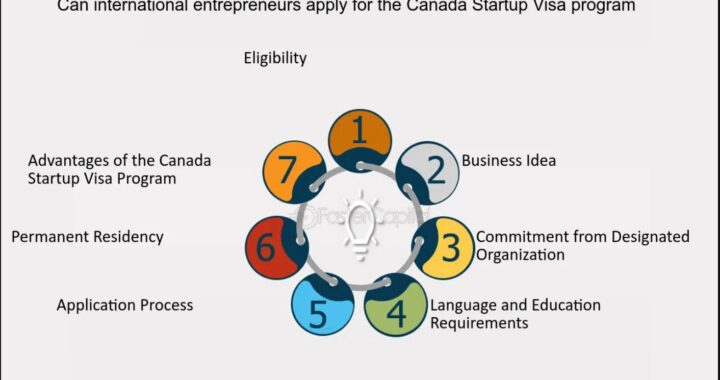
Launch Your Dreams: A Guide to Canada’s Start-Up Visa Program for Global Entrepreneurs
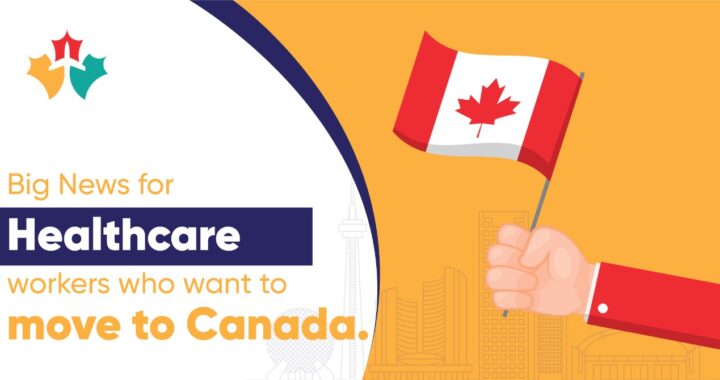
Options for Immigrating to Canada as a Healthcare Worker- Best Canadian Provinces that offer good salaries
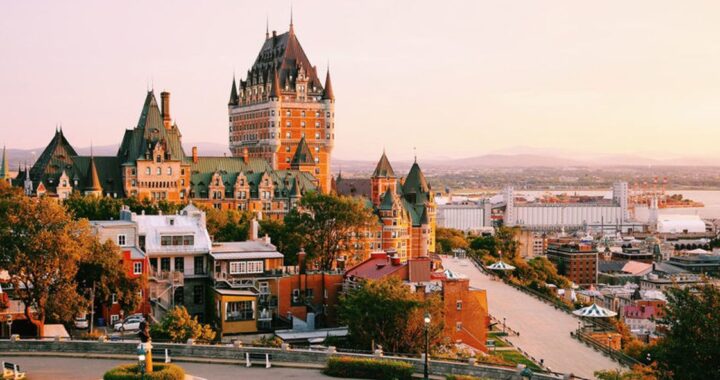
Immigrating to Quebec province Canada- Professions in demand with salaries- Racial Discrimination
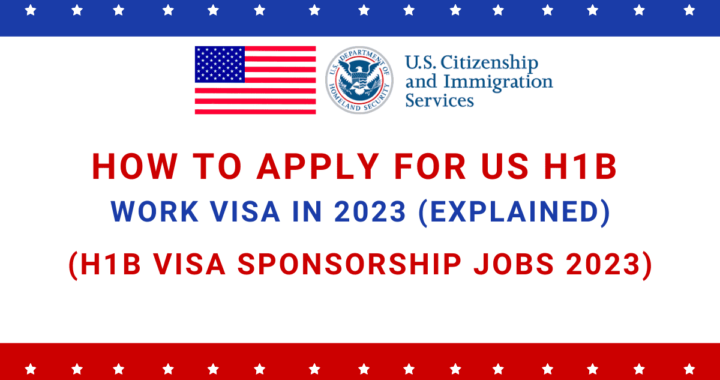
H1B Visa- Eligibility Requirements- its Duration- Process to apply and Professions in demand
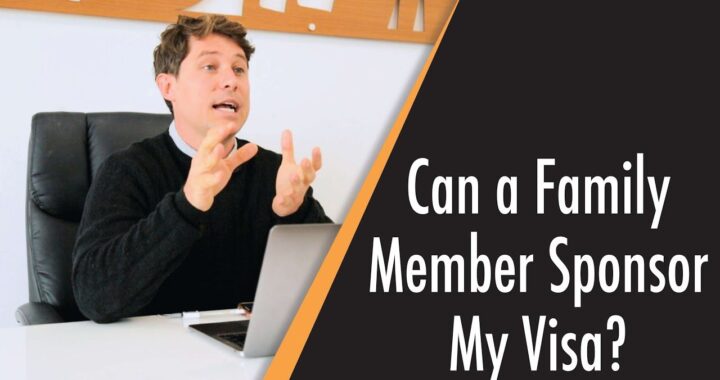
Who can sponsor someone for Canada Visa and eligibility requirements to get sponsored for Canada Visa

What are Strange but not well-known facts about Canadian Immigration
You may have missed.

The high real estate prices in Canada are significantly impacting immigrants and International Students in Canada
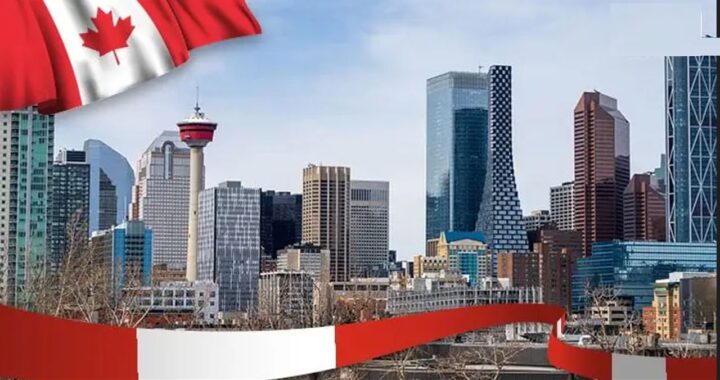
- Cover Story
Canada Immigrant Investor Program 2024- loaded with many good features- Check out here
- Skip to main content
- Skip to site information
Language selection
Help us to improve our website. Take our survey !
Marriage outside Canada
If you are planning to be married in a foreign country, you should contact the nearest embassy, high commission or consulate of the country where the marriage will take place. They will tell you what documents you will need and whether they need to be authenticated. Canadian government offices abroad can also provide information about laws and regulations in the countries where they are located and a list of local service providers if you need legal guidance.
On this page
General information, same-sex marriages, travelling abroad to meet a marriage partner, marriage documents, consular help for marriage-related problems or divorce in another country, marital crime or fraud, preventing your return to canada.
You cannot get married at a Canadian embassy or consulate in a foreign country. Canadian consular officials do not perform marriage ceremonies, and they do not have to attend your marriage.
Marriages that are legally performed in a foreign country are usually valid in Canada, and you do not need to register them in Canada.
Marrying a citizen of another country may automatically make you a citizen of that country. This will not affect your Canadian citizenship, but your adopted country may not recognize your Canadian citizenship and may prevent Canadian consular officers from helping you. For more information, contact the nearest Canadian government office abroad or see our Travelling as a dual citizen page.
Although same-sex marriages are legal in Canada, they are not recognized in many countries. Same-sex civil unions are more widely recognized. For country-specific information, read our Travel Advice and Advisories , contact the destination country’s embassy, high commission or consulate in Canada or see Travel and your sexual orientation, gender identity, gender expression and sex characteristics .
Be cautious when you go abroad to meet a marriage partner, especially if the relationship began online. A potential partner may consider marriage to a Canadian citizen as a ticket to an immigrant visa. Many Canadians have quit their jobs, given up their homes and sold all their belongings in anticipation of an overseas union that immediately fails or never occurs.
Learn about the customs and laws on relationships and marriage in the country where the marriage will take place before you leave Canada. This country may view women’s rights, premarital sex, child custody and other issues quite differently than we do in Canada. You should travel to your destination country with a return ticket, enough money to stay in a hotel, and, in case of problems, information on how to contact the nearest Canadian government office abroad . You should carefully safeguard your airline tickets, money and passport.
The documents you will need to get married outside of Canada will depend on your circumstances and the country where you plan to get married. Before you travel, please contact the embassy, high commission, or consulate of the country where you plan to get married to determine what documents you will need.
If you are a Canadian citizen or permanent resident planning to marry abroad, local authorities may ask for documents such as a:
- valid Canadian passport
- birth certificate
- marriage search letter
- single status affidavit
- certificate of non-impediment to marriage abroad
- premarital blood test certificate
- statement of parental consent
- divorce certificate (if you were previously married)
- death certificate (if you are widowed)
You may need to have the documents translated into the language of the country where the marriage will take place. You may also need to have the documents authenticated in Canada and/or stamped by a consular official of the country where you will get married. Authentication proves that the signature and the seal on the document are genuine.
Marriage search letter
A marriage search letter is issued by the office responsible for registering marriages in the province or territory where you live. This document will confirm whether or not you have registered a marriage there. Some countries may require you to provide an authenticated marriage search letter before you can get married. Follow the steps to get your document authenticated .
Single status affidavit
A single status affidavit is a document that you swear in front of a notary or other authorized official that indicates that you are single. Follow the steps to get your document authenticated .
Certificate of non-impediment to marriage abroad
A certificate of non-impediment to marriage abroad confirms there are no objections to a proposed marriage or civil partnership. Canada does not issue these certificates. Instead, we can issue a statement in lieu of certificate of non-impediment to marriage abroad. Find out how to get a statement in lieu of certificate of non-impediment to marriage abroad from the Government of Canada .
If you are already outside Canada, you may instead be able to request this document, for a fee , from the nearest Canadian government office abroad .
- Some foreign governments may not consider this statement to be sufficient proof of your eligibility to marry.
- Some countries will not accept this document unless it is issued in Canada. If this applies to you, make sure to submit your request well in advance of your intended travel dates.
Officials at the nearest Canadian government office abroad can provide you with a list of local lawyers, shelters and social services (if available) that can help. We can offer services if you need help returning to Canada, are concerned about fair treatment under a country’s laws, or need help in a foreign country.
Growing numbers of Canadian citizens are caught up in marriage-related crime or fraud overseas. Canadians have been extorted by foreign in-laws, caught up in scams involving cyber-romance, or duped into sponsoring a spouse who bolts after arriving in Canada. If this happens to you, you will need to hire a lawyer with expertise in matrimonial law. Officials at the nearest Canadian government office abroad can provide a list of legal representatives in the country concerned.
Polygamous marriages are not legal in Canada and are an offence under the Criminal Code of Canada.
In Canada, it is also a crime to force anyone, whether a child or an adult, to marry. It is also a crime to take anyone under the age of 18 out of Canada to force him or her to marry in another country. For more information, see our Forced marriage page.
In some countries, a husband can lawfully impose travel restrictions on his wife and children and preventing them from returning to Canada. Local laws may also allow him to retain the woman’s passport and assets, even if the two are divorced.
For more information, see our Travel Advice and Advisories or the destination country’s embassy, high commission or consulate in Canada, or read our booklet International Child Abductions: A guide for affected parents .
- Travel and your sexual orientation, gender identity, gender expression and sex characteristics
- Forced marriage
- Authentication of documents
You are using an outdated browser. Please upgrade your browser to improve your experience.
Forgot Password?
You can reset your password here.

Email was Sent
Please check Your email
Come to Canada
Get a free e-book to get you started on your journey!
We take the security of your personal information very seriously. All data and information disclosed on this site are highly confidential. Once you personal data is stored, we employ highly secure servers that restrict access to potential third parties.
Sign Up To Our Newsletter Today & Get a Free e-Book

Canadianvisa.org
We Make Immigration Simple
2020-09-07T01:44:04
2023-03-02T09:33:00
Accompanying your partner on the exciting adventure of immigrating to Canada? Here’s what you’ll need for your spousal visa.
- Immigration
What Are The Requirements For a Spousal Visa

Kelia Losa Reinoso is a qualified content writer with a Master of Arts degree in Journalism and Media Studies
You and your partner are ready to start the incredible journey of immigrating to Canada. Whether you are applying on behalf of your beloved spouse or you are the beloved spouse, it will be helpful to know what the requirements are to be eligible for a spousal visa for Canada. It doesn’t matter which visa or immigration program you are coming to Canada on; if you have a common law partner, they may be eligible to come live with you and can even work in Canada.
Spousal Visa Requirements

Your Eligibility to Sponsor Your Spouse
You can sponsor your spouse, common-law partner, or conjugal partner who is at least 18 years old. You must be a Canadian citizen, a permanent resident of Canada , or a person registered in Canada as an Indian under the Canadian Indian Act. You must also be at least 18 years old.
Whenever you sponsor a family member to Canada , you must sign an undertaking in which you promise to provide financial support for them.
You may also be eligible to sponsor your dependent child if you're sponsoring an adopted child. If you're coming to Canada for a short time and want your spouse, partner or child to come with you, find out if they can come with you.
If your spouse or common-law companion is in Canada, you should apply under the following circumstances:
- Resides with you in Canada,
- Has a current temporary resident visa, or;
- Is exempt from this requirement due to a public policy or;
- Eligible for an open work permit so they can work while the application is being processed.
Income Requirements
Usually, there is no low-income cut-off (LICO) for sponsorships of a spouse, partner, or dependent child. However, you must achieve a minimum LICO number, which is set by the Canadian government each year, if either your spouse or partner, who you are sponsoring, has a dependent child who has dependent children of their own, or if the dependent child you are sponsoring has a dependent child of their own.
Your Obligations as a sponsor
When you accept to be a sponsor, you are required to sign an undertaking pledging to provide money for your spouse or partner's and their dependent children's basic needs. These basic needs can include dental care, eye care, and other health needs not covered by public health services, as well as food, clothing, shelter, and other necessities of daily life.
You must confirm that the individuals you sponsor won't need to turn to the government for financial assistance before you execute the undertaking agreement.
The undertaking is a legally-binding pledge of support, so even if your circumstances change, you must continue to provide for the applicant(s) during the undertaking period. Even if your situation changes, the undertaking will remain in force for the entire undertaking period.
Length of The Undertaking
For a spousal visa, the length of the undertaking must be three years from the day your spouse, common-law partner or conjugal partner becomes a permanent resident.
How to Apply

Follow these steps to apply for a spousal visa:
- Step 1. Check Your Eligibility
- Step 2. Gather documents
- Step 3. Complete the application
- Step 4. Pay the fees
- Step 5. Check your application to avoid common mistakes
- Step 6. Submit the application
Canada Spouse Visa Processing Time
Applications for sponsorship go through the entire processing cycle in about a year. Normally, they don't take much longer than a year to process, but it depends on the specifics of your situation.
The processing of your case will be delayed and take longer if it is complicated or the visa agency needs more evidence of your relationship.
Making sure that your sponsorship application is completed accurately the first time is the best way to guarantee that it is processed as quickly as feasible.
In order to submit your application, you’ll have to pay several application fees, such as the fees for sponsorship, processing fees and right to permanent residence fees. Ensure that you pay the correct fees by contacting a professional.
How to Fill out the Forms
There are several forms below that you have to fill in. Each form is made up different sections. They must all be filled in as accurately and honestly as possible. In order to ensure these forms are accurately filled out, contact an RCIC.
- Application to Sponsor, Sponsorship Agreement and Undertaking (IMM 1344)
- Sponsorship Evaluation (IMM 5481)
- Financial Evaluation form (IMM 1283)
- Relationship Information and Sponsorship Evaluation Form (IMM 5532)
How to Avoid Common Mistakes
A number of factors will be taken into account by visa officers to determine whether your connection is sincere. They will take into account some more conventional aspects, such as pictures from your wedding that show members of your family in attendance. Others may be more specific to the local societal norms.
If your relationship is unusual, it is advised that you provide more proof of your relationship's sincerity. Letters of justification may also be useful in explaining to an immigration officer why your relationship might not exhibit all the same signs as a marriage more typical to your culture.
- Always check country specific requirements before submitting your application.
- Make sure you include a valid marriage certificate or proof of registration of your marriage with your application
- Ensure you submit a copy of your birth certificate and your spouse’s
- Must be able to provide an original document during the processing of your application if an IRCC Officer determines it is necessary.
- Finally, make sure all your email addresses on the forms are correct as errors will cause delays
The best way to avoid making mistakes is to seek the guidance of a Regulated Canadian Immigration Consultant (RCIC), who will ensure you are provided with the correct information and advise you on which documents you will need.
Benefits of Moving to Canada with your Partner

Open work permit: Applying as a sponsored spouse or common-law partner in Canada
The spouses of some current work permit holders under the Temporary Foreign Worker Program (TFWP) will now be eligible for Open Work Permits (OWP), according to an announcement made by Immigration Minister Sean Fraser on December 2nd, 2022.
Study in Canada
A good option you may consider is to study in Canada while your partner is working. If you are concerned about the cost of tuition, note that you may also be eligible to work a part time job while you are studying as long as it is less than 40 hours a week.
One of the most preferred ways the Immigration and Refugee Council of Canada grants foreigners permanent residency in Canada is through one of the many international graduate immigration streams. Nearly every province or territory has an immigration stream dedicated to helping foreigners who graduate from a designated Canadian post-secondary school become permanent residents.
Working in Canada
Once you arrive in Canada, if you can secure a job offer , you will also be eligible for an open work permit. This way you can contribute to both your household and the Canadian economy, building your case for permanent residency in Canada with every passing day.
Bringing a Dependent to Canada
If you are applying for permanent residency in Canada, regardless of whether it is inland or outland sponsorship, it is imperative that you add your partner as a dependent on your application. It is highly recommended that you do not apply separately. There is a lot more administration, double the costs and the chance that one of you may be approved and the other not. When applying as a couple, you can also pool your resources to make your application more attractive, for example assets in your name, qualifications and so on.
Changes and Updates to The Spousal Sponsorship Application Process

For the majority of permanent immigration programs, including both inland and outland spousal and common-law partner support, IRCC moved toward 100% online applications.
Proving your relationship
The proof that must be provided by the applicant should demonstrate the genuineness of the relationship, whether you are married, common-law partners, or conjugal partners. For example, if you are married spouses who can demonstrate that you have a child together are married for the first time, are currently living together, and have been married for at least two years, you will not be required to submit additional evidence of your relationship.
On the other hand, if you are required to submit additional evidence of your relationship, there are no limitations on how many pages or pieces of supporting material you can submit. For example, you can submit a maximum of 20 photographs to support your relationship, which should be taken at different times and places. Similarly, you can submit a maximum of 10 pages of letters, text messages, emails, or social media conversations.
Medical exams no longer need to be submitted upfront, IRCC will send instructions when the medical exam results are needed. Likewise, the police certificate requirement has been streamlined, meaning you will need to submit them from the country where you are currently living in, and the country where you have spent most of your adult life since reaching the age of 18.
In spousal sponsorships, the legitimacy of the relationship is the key element to being accepted. The Spousal Sponsorship Program was designed in a way that it doesn’t matter where you get married as long as your marriage is legally recognized in that country and in Canada. In terms of marriage being recognized in Canada, it is not so much the location, but the age and consent of the parties getting married that must comply with Canadian laws as well. For example, polygamous marriages forced marriages, and/or under-age marriages even if it’s legal in another country, won’t be considered legal in Canada.
Can My Spouse Move With Me To Canada While We Wait For Spousal Sponsorship?
Although no special visa is available to applicants anticipating a decision on their sponsorship application, your spouse or partner may visit Canada while you await approval. If a permanent residency application is already pending, some spousal sponsorship candidates may have trouble getting a temporary visa.
Will I Need To Do An Interview for Spousal Sponsorship?
Immigration interviews are uncommon and more the exception than the norm in spousal sponsorship situations. In spite of this, spousal sponsorship immigration interviews frequently take place when there are gaps in the documentation of the relationship, discrepancies between the information provided on the forms and the supporting documentation, age and religious differences, a short time between meeting your spouse and getting married, and little to no cohabitation.
What Documents Do I Need For Spousal Sponsorship?
- Correct and completed application forms
- Proof of current legal status in Canada
- Both Identity documents
- Marriage certificate (in a legal marriage is present)
- Police Certificate and Clearances
- Medical certificate (for your spouse)
- Paid application fees
- Digital photos
- Relationship Information and Sponsorship Evaluation Questionnaire
- Support documents like wedding invitations and photos
- Birth certificates or adoption records for any children you and your spouse may have together
- Registration of marriage with relevant governments (your home country, for example)
SHARE THIS ARTICLE
Recent posts
Faqs: everything you need to know about the rural and northern immigration pilot.
Want to move to a more rural setting in Canada? Here's everything you need to know about the Rural and Northern Immigration Pilot
Your First Canadian Tax Year: Filing Taxes in Canada
Are you a newcomer to Canada? Then it's time you learn more about taxes in Canada to ensure that you file your tax returns on time.
Study in British Columbia in 2024
Immerse yourself in a vibrant multicultural environment, explore stunning natural landscapes, and engage in innovative research opportunities by choos
The Best Places for Musicians to Live in Canada
Discover the best Canadian cities for musicians, offering vibrant scenes, performance opportunities, and artistic inspiration.
Get your free e-book today!
Want to learn more about Canada? Subscribe to our newsletter and get an e-book on Canadian immigration filled with mesmerizing sights of Canada!
CanadianVisa.org is a private recognized immigration agent and is not affiliated with the Canadian Government. Privacy policy
Back To Top
- Research a Topic

How to get married in Canada to a foreigner?
- Share on Facebook
- Share on Email
- Share the Link
- Print This Page
Table of Contents
An in-depth, step-by-step article showing you how to fill out the application and answer the most frequently asked questions
Quick answers:, my foreign partner is already in canada. can we get married.
Yes, you can get married to your non-Canadian partner here. Each Canadian province has its steps, but it’s relatively straightforward. You can start by visiting your Provincial Vital Statistics website and looking for “marriage services.” Click here to jump to the article related to these steps.
My foreign partner is not in Canada yet, but we would like to get married here .
If your spouse holds a first-world passport (for example, British or American), or they just need an eTA (for example, coming from Mexico), it’s relatively easy as long as you get your eTA .
Just remember, CBSA ( Canada Border Services Agency ) sometimes has issues with visitors coming to Canada to get married.
If your partner needs a visitor visa before getting here , then in most cases, it will not work (with some exceptions), and you will be forced to get married in your partner’s home country. Keep reading this article to learn why your partner is unlikely to get a tourist visa to Canada.
Tip: Learn more about eTA; click here .
Tip: You may ask yourself, should I lie to CBSA about getting married in Canada? The short answer is “ no ,” but at the same time, keep your answer as short as possible when at the border. Click here to read more about this topic .
Both myself and my partner are foreigners here in Canada. Can we get married here?
Yes, two foreigners get married in Canada. Each Canadian jurisdiction has its process. Click here to jump to the article related to this step…
Tip: Getting married to a Canadian does not give you any rights to live, work, or study in Canada. Click here to read more…
Need more FAQs , click here
In-depth explanation:
One important note to keep in mind:.
Is your partner (newcomer) staying in Canada, or are you simply getting married and moving to another country?
- If you stay in Canada, you need to read everything here because you will face some work ahead.
- If you’re not staying in Canada and just getting married here, you can skip most of this article and go straight to this part: click here .
Are you wondering about a foreign national getting married in Canada? Or whether you can get married in Canada on a visitor visa – assuming you are not Canadian?
Maybe you’re wondering whether you can get married to a foreigner in Canada and how to get married to that person, whether they be a foreign national visiting Canada or an immigrant temporarily in the country on a study or work permit.
Relax, the news is mostly good. But you should be aware that there are certain things that marriage to a Canadian does not get you. First, the good news.
Getting married in Canada is relatively easy; generally, it’s none of the IRCC’s (Immigration, Refugees and Citizenship Canada) business. Neither of you even has to be a resident of Canada, as long as you are both physically present at the wedding ceremony (whether civil or religious).
Tip: Religious ceremonies can be trickier because some denominations require an interview and have their requirements. Plan ahead! For example, here is what the Archdiocese of Toronto states, “ Couples should speak to their pastor at least twelve months in advance. ”
Tip: IRCC refers to the branch of the Canadian government that deals with immigration issues. This will only be an issue (and a big one) if you plan to have your non-native partner stay with you in Canada. Our website is full of great resources covering this topic. Click the link to look for articles about Sponsorship and Marriage .
However, the IRCC can potentially get involved in assessing the validity of your marriage if and when you apply to sponsor your newly married spouse – assuming one of the partners in the marriage is either a citizen or permanent resident of Canada.
So, let us guide you through the marriage process in Canada with just a caution about the IRCC if and when you take the next step and apply to sponsor your newly wedded spouse. Here’s what IRCC says about marriages of convenience:
“It’s a crime for a foreign national to marry a Canadian citizen or permanent resident only to gain entry to Canada.”
So be aware that the IRCC can be on the lookout for quickie marriages that soon end in a very convenient divorce. Now, having said that, proving intent is very much another matter. And in practice, the Canadian government has been easing up on the restrictions on sponsored spouses in Canada.
In April 2017, they dropped the requirement that a sponsored spouse who had been in a relationship with the sponsoring spouse for less than 2 years and who had no children with that sponsoring spouse was required to live with the spouse for 2 years in Canada or lose their permanent resident status. The good news is that this requirement has been dropped. As the Canadian government stated, there are 2 main reasons for dropping what was called conditional permanent residence:
- Most marriages are genuine.
- The government is committed to gender equality and fighting gender violence.
So, don’t worry too much about the IRCC snooping around about the reasons for your getting married. Just go ahead and understand the process and take the necessary steps as we explain below.
Let Immigroup help you with all immigration and document matters. We can help you with your spousal sponsorship application , visitor or student visa & extensions, and authentication and apostille services.
Paid Sponsorship Service from Immigroup
Definitions to help you understand the next part of this article:
What is a Marriage License in Canada : this is what you must get to get married. You obtain it before getting married and generally pay a fee. For example, in BC, only one member of the couple is required to purchase a marriage license at a cost of $100. We’ll get into the steps of this a little further on.
What is a Marriage Certificate in Canada : This is NOT a Record of Solemnization of Marriage. It is an official record of your marriage that you apply for after marriage. For example, in Ontario, you can apply in person, online, or by fax, as we explain further below. While a marriage license is only valid for weddings/civil ceremonies in the same province or territory, your marriage certificate is also valid across Canada and overseas.
Steps you need to take to get married in Canada to a foreigner:
Remember, the next part is great to look at; it will give you an excellent overview of the process in your area of Canada. We have 3 provincial jurisdictions you can choose from British Columbia , Alberta and Ontario . Scroll to your preferred location to see an example.
Once you understand the steps, visit the official government websites, and start the process (links below).
British Columbia Alberta Ontario Saskatchewan Manitoba Quebec New Brunswick Nova Scotia PEI Newfoundland & Labrador Nunavut Northwest Territories Yukon
Getting Married in BC

- You must obtain your marriage license before you get married (your marriage certificate is obtained after your marriage ceremony). Your marriage license is valid for 90 days, so your wedding date has to be within 3 months of the date you obtain your license.
- You apply at BC’s Vital Statistics Agency. Here is the contact information:
Phone: 250-952-2681 (local Victoria, BC number)
1 888 876-1633 (toll-free in BC)
Email: https://www.health.gov.bc.ca/exforms/vs/general-inquiries.html
Mailing Address: Vital Statistics Agency
PO Box 9657 Stn Prov Govt
Victoria B.C.
- Only one member of the couple has to apply in person, as long as they bring primary IDs for both members of the couple, such as the following:
- Birth Certificate
- IMM immigration form (visitor/study/work visa for example)
- Permanent Resident card
- Citizenship card
- A passport may be accepted in some circumstances
- Driver’s licenses may be accepted in some circumstances
- The fee is CAD$ 100. However, suppose COVID restrictions cause a postponement of your wedding. In that case, you can request a refund directly from Vital Statistics using the contact information directly above (it’s best to phone them first).
- Go here to look for the nearest Marriage License Issuer in BC.
- You must next register your marriage after you have completed the ceremony.
- First of all, you need 2 witnesses to attend your wedding ceremony.
- As well, you need an officiant – and who it is will depend on whether your ceremony is civil, which is much quicker, or religious – and the officiant is who officiates your marriage declaring you a legally married couple in accordance with Canadian law.
- Then after the wedding ceremony, the following people must sign the Registration:
- The couple getting married
- The officiant
- The 2 witnesses
- Next, the officiant will – within 48 hours of the wedding – submit the signed Registration to the Vital Statistics Agency in BC, at which point your marriage becomes legally registered with the BC government.
- Finally, the Vital Statistics Agency can issue a Marriage Certificate (see the next step)
- Remember, if for some reason your Marriage Certificate is lost, and you don’t yet have a replacement, you can ask for a Certified Copy of your Marriage Registration. However, these copies are generally used for courtroom/legal purposes. They do not function as legal personal IDs.

- You can apply for a Marriage Certificate in 4 ways:
- Use Vital Statistic’s online ordering service: https://ecos.vs.gov.bc.ca/
- Use the mailing address given above.
- Go to any Service BC counter in person. Go here for more information. You will need to provide the same information that you provide when filling out the Marriage Certificate Application form (see below).
- Phone Vital Statistics at the numbers given above.
- Here’s an example of an application for a Marriage Certificate:

- Vital Statistics will mail your Marriage Certificate to the mailing address you provide when you apply for a marriage license, as shown in the image above. It generally takes around 3 weeks from the date you register for the wedding to arrive.
Getting Married in Alberta
The basic requirements are relatively similar from province to province, as you’ll see as we work our way across the main provinces in Canada.
In Alberta, as in BC, you have to first get a marriage license before getting married and obtaining your marriage certificate.
Step 1. Eligibility
- As is the case across Canada, there are no restrictions on foreign nationals getting married in Canada. Specifically, there are no residency or citizenship restrictions to getting married in Wild Rose country. (That’s a nickname for Alberta, by the way)
- The marriage license is valid (as in BC) for 3 months from the day it’s issued. You can also get married as soon as you receive your license – that is, on the very same day.
- PLEASE NOTE: An Alberta Marriage License is only valid for marriages in Alberta.
- This may seem painfully obvious, but whatever province/territory you are in, you must receive your marriage license from that and only that provincial/territorial government.
- Why? Because marriage is considered a health issue and is dealt with by the vital statistics agency or its equivalent in each province/territory in Canada. That means you have to get married in the same province where you obtained your marriage license. Your marriage certificate , however, is valid anywhere in Canada, and generally abroad as well.
- Moral of the story is? Please don’t show up in Radium Hot Springs, BC, with an Alberta Marriage License. It won’t be accepted, even if Alberta is just across the provincial border. You’ve got an Alberta Marriage License? Get married in Alberta.
- Unlike BC, both couple members have to apply at the Registry Agent Office. Go here for more information. As well:
- You will have to swear an affidavit
- You cannot be under the influence of alcohol or controlled substances (Alberta is not Las Vegas)
- You cannot be related to each other as grandparents, parents, children, siblings, or Grandchild. PLEASE NOTE: This prohibition for immediate family members is true across Canada.
- If you are 18 or older, you can get married without conditions.
- If you are between 16 and 17 years old, you must have your parent’s or guardian’s approval.
- You must have valid personal identification that:
- It must be the original document and not a copy
- Must still be valid (have not expired)
- Must have been issued by a provincial/territorial government or the federal government of Canada OR by a state, provincial, or national government (for example, California or India)
- Must contain: your photo; your first and last name; a unique identification number
- You must be:
- Divorced (proof of divorce needed), OR
- Widowed (death certificate needed), OR
- Never Married (no proof needed – CANADA DOES NOT HAVE A REGISTRAR THAT RECORDS PEOPLE’S MARRIAGE STATUS UNLIKE MANY OTHER COUNTRIES)
- If your marriage was annulled , your condition will legally revert to whatever condition of the above three applied to you before you got married. For example, if you got divorced in India and later had a marriage annulled in the UK, then your status after the annulment goes through would be divorced.
- PLEASE NOTE: This condition applies across Canada. You cannot be married to more than one person.
Step 2. What you need to bring
Make sure you have an acceptable ID as explained above – you can contact your registry agent through the link above to ensure your documents are adequate. You should also ensure you have any other required documents – like death certificates, or divorce certificates or court documents proving divorce.
Step 3. Who has to go
Both members of the couple then should go to the registry agent with their ID and supporting documents (if needed) and a Marriage License will be produced while you wait.
- The document you will be issued is a 2-part document:
- The top part is your Registration for Marriage
- The bottom part is your Marriage License – (it’s this part that you give to the person performing your wedding)
- The cost is CAD$ 40.
- PLEASE REMEMBER TO REVIEW YOUR DOCUMENT FOR ERRORS RIGHT THERE AT THE REGISTRY AGENT.
- The registry agent can correct errors if spotted before the wedding ceremony.
- If spotted after the wedding ceremony, your document (registration and license) will have to be corrected by amendment. This takes time and is a setback you should avoid by carefully checking the Registration/License document as soon as you get it.
Step 4. Take your Marriage License to the Wedding Ceremony (it can be the same day as stated above) and present it to the person performing the wedding ceremony.
Step 5. Apply for your Marriage Certificate
- Go here and scroll down to the end of the webpage where it says How to Apply .
- Click on here for requests for application forms from within Alberta.
- Take your completed form along with your valid ID to the Registry Agent . DO NOT SEND TO VITAL STATISTICS OF ALBERTA
- Vital Statistics in Alberta usually takes only 3 business days to process your request for a Certificate which is typically mailed to the address you gave in the application form.
- However, you can also have the certificate sent to your registered agent if they have call box service and as long as you made the arrangement previously with them.
- Here are the contact phone numbers for Service Alberta:
780-427-7013 (local Edmonton area only)
310-0000-427-7013 (toll-free in Alberta only)
Getting Married in Ontario
As you’ll notice, the basic requirements and steps are fairly similar to those in BC and Alberta. Let’s start with eligibility.
Step 1: Who can get married
- You must be at least 16 years old, and if you are under 18 years of age (but 16 or 17) then you need your parent’s or guardian’s consent. Consent forms are available where you get your marriage licence.
- Go here to ensure that your officiant (the person who performs the marriage ceremony) is registered and authorized in Ontario to do weddings.
- For civil marriages, the following occupations are authorized in Ontario:
- A municipal clerk
- An Ontario justice of the peace
- An Ontario case management master
Step 2: Get your marriage license or Church Banns
- You either need a marriage license or a church banns to get married in Ontario. Please note that if someone has been previously married, they cannot obtain a church banns and must get a marriage license instead.
- Your marriage license will have to be signed by both members of the couple, the witnesses, and the person officiating the ceremony.
- Your marriage license is obtained at your local municipal offices, where you will be getting married. You will need 2 pieces of ID, such as:
- Government-issued birth certificate
- Valid passport
- Record of immigrant landing
- Canadian Citizenship Card
- Valid Driver’s license
- Government-issued photo ID from abroad
- As in BC and Alberta, your marriage license is valid for 3 months from the date of issue. However, because of COVID restrictions, expiry dates have been extended as follows:
- If either partner has had a name change or a change in marital status since their unused marriage license was issued, AND your unused marriage license has expired, then you can apply for a replacement license.
- Go to the municipality where you originally purchased your marriage license
- Bring your unused marriage license if you still have it
- Bring your required ID and any other supporting documents needed
- There is NO provincial fee for a replacement marriage license.
- There may be municipal fees.
- Unfortunately, because of the province-wide emergency declared in January of 2021 in the city of Toronto, marriage licenses can only be obtained by appointment for the time being. Go here for an online guide to filling out the form.
- There are 8 steps:
Step 1: Enter the place and date of marriage as well as the language for the license.

Step 2: Enter the applicant’s information (one of the couple)

Step 3: Enter the joint applicant’s information (the other one of the couple)
Step 4: Review the application
Step 5: Submit the application
Step 6: Download and print the completed application form
Step 7: Record the application number – you will need it when getting your marriage certificate.
Step 8: Both members of the couple must sign and date the application
- As this is an official legal document, we did not fill out the rest of the form, but from the images, you now have a pretty good idea of how to proceed.
- Go here to book your appointment. You can only book one appointment per couple. Do NOT book multiple appointments in the hope of jumping the queue. Remember to print your Appointment Permit.
- At your appointment, you will need:
- Completed application form with original (not scanned) signatures and dates
- Appointment Permit
- 2 valid Government-issued pieces of ID
- Divorce documentation, if applicable
- If an interpreter is required, you must hire or provide someone to interpret for you.
- Only 1 of the couple should be at the appointment and take all security precautions like wearing a mask, etc.
- The municipal office issuing the marriage licenses is in the North York Civic Centre at 5100 Yonge Street. (Don’t get off at the Eglington Station – keep going to North York Centre or Sheppard/Yonge subway stops).
- The cost of a marriage license is CAD$ 145
Step 3: Order your Marriage Certificate
You can order your marriage certificate online if the marriage is registered in Ontario. You will also need the following to order online:
- First and last names of both parties to the marriage.
- Dates of birth of both parties to the marriage.
- Date of marriage.
- Name of city, reserve, or town where the marriage took place.
Go here to order your marriage certificate online. This is what you should see after you click through a couple of pages at the website and are ready to begin the process:

Scroll down to the bottom where you see the following and click on the Next> button to begin.

- Your fees are paid online using the following methods:
- Visa, Visa Debit
- Mastercard, Debit Mastercard
- Interac Online
- The fees are as follows:
Here is the list of all other provinces in Canada; just apply the steps we’ve outlined above in the 3 principal English-speaking provinces in Canada. Remember, the steps will be similar, but with some differences, especially in Quebec.
Can I stay in Canada if I marry a Canadian?
Your foreign spouse does NOT gain the right to become a Canadian citizen merely by marrying. Your partner will remain with the same rights they had before marrying you.
You must apply first for permanent residency in Canada, and after some time, they can then apply for citizenship like anyone else – which means you still have to take the required steps. That usually means getting sponsored by your Canadian spouse – a lengthy process in and of itself, as we explain at the link just below – to get permanent resident status.
Tip: Immigroup has a 38-chapter Free Sponsorship Course ; look to see what is required of you.
In other words, marrying a Canadian gets you NO special treatment in the process which any foreign national has to undertake to obtain citizenship. It certainly can give you a pathway to permanent residence but as we said above, being sponsored by your spouse is a detailed process, one where success cannot necessarily be guaranteed.
The unavoidable conclusion is that getting married as a quick ticket into Canada is a strategy that will backfire on you. Canada’s immigration authorities – whether IRCC or CBSA – will often sniff that out, and you’ll find yourself with an unsuccessful sponsorship application and maybe even a rejection on a visitor visa, as we explain below.
My partner is not in Canada yet. Can they get here so we can get married here in Canada?
Short answer: it depends .
It depends on the specifics of your wedding, your personal and economic situation in your home country, your home country, and your relationship with your newlywed Canadian wife/husband.
To make this point clear, let’s consider a couple of theoretical, contrasting scenarios:
- You’re an Irish national with an engineering degree and over five years of experience in the utility sector, and you own a property in Dublin. Your partner is from Calgary and owns a 2-bedroom house. Both of you met in Europe while working, started dating and now that a few years have passed, you want to get married and start a family in Calgary. Both of you think it would be great to have the wedding in Banff, Alberta.
- You meet your partner in the Philippines while on vacation. You are both in love and want to start your new life in Canada. Your Philippine partner has a high school degree and works at a local call center. She lives at home with other family members. She has never visited a first-world country, does not own any property, and her job is with a small company.
Who do you think has a better chance of getting to Canada? Unfortunately, applying for a visitor visa to get married in Canada is simply not recommended.
Understand that most cases lie somewhere between these two rather extreme scenarios. The devil is indeed in the details. There are several scenarios when considering coming to Canada to get married.
What happens if I marry my partner and they are on a tourist visa?
If you marry your partner as a tourist or, in this case, using any type of visa, nothing will happen. They can keep the current visa status, but at some point, when they need to renew, it can cause problems. It is recommended if you are planning to, say in Canada, that you file a Family Class Sponsorship Application within the first few months after the marriage or before their visa expires.
We are engaged overseas but want to have the marriage in Canada – Is this possible?
This can be a little trickier. If your foreign spouse is from a First-World country or only needs an eTA and has stable ties in their home country and a successful career, then getting to Canada to get married has a pretty good chance of succeeding, especially if they’ve visited Canada previously or have travelled elsewhere and always complied with their visa requirements. It might not seem fair, but First-World travellers will often have an easier time getting that visa to go and get married in Canada.
This doesn’t mean, however, that foreign partners from other countries will always face difficulties getting that visitor’s visa. For example, imagine a successful software developer from India with a consulting company who frequently travels to Europe and North America on business and has substantial economic and personal ties in their home country. They become engaged to a Canadian citizen and decide to get married in Canada. Because of their ties to India and their record as a traveller, they should be able to get that visitor’s visa.
- An important point is what to say to immigration officials at your POE (Port of Entry – generally the airport in Canada you arrive at). There’s no need to go into a lengthy explanation of your situation. Just a brief answer saying you’re getting married in Canada should suffice. If CBSA officials decide they want more information, they’ll ask you.
Tip: Did you know we have a do-it-yourself visitor visa article ? Click the link
Remember, CBSA officials have the final say on whether to let you into Canada, even if you’ve obtained a visitor’s visa before arriving at your Port of Entry. As they say here at the travel.gc.ca website:
Many factors come into play when Canada Border Services Agency (CBSA) determines if you are permitted to enter Canada. It is important to note that the final determination is made by a border services officer at the port of entry. They base their decision on the information they presented at entry into Canada .
How long does it take to get permanent residency after marriage in Canada?
A quick and short answer is:
Assuming the application that is filed is 99% perfect.
- 1-3 months to put the Family Class Spousal Sponsorship Application together and submit it to the government.
- 6 months before you can file an open workpermint
- 4-8 months before a decision is given (approved or disapproved)
Note: read here about what to do if the application fails
Congratulations! You’ve jumped through the hoops, got your license, do the wedding ceremony, and ordered and received your marriage certificate for a marriage performed and now legally registered in Canada.
The issue of where to spend the next years of your lives together will be something you’ve both thoughts of from when it became apparent that your relationship was a serious and lasting one. What should you do next?
A sponsorship application where the Canadian citizen or permanent resident sponsors the foreign national for a permanent resident visa is the next step for most couples.
But spousal sponsorship – as we stated at the beginning – is a detailed and lengthy process. Suppose you get it wrong by rushing it and sending an application full of mistakes which also lack sufficient supporting documents. In that case, you will end up facing a lot of wasted time, worry, expensive legal costs and, in the worst-case scenario, needing to move from Canada to be with your spouse.
So again, congratulations on your marriage. But please, make sure you take the time and effort and get your spousal sponsorship application right.
Immigroup has been dealing with spousal sponsorship applications since 2004; our firm will help you with the entire process from beginning to end, or we can just review it before you file your application. A paid review should be the absolute minimum you should do before filing your application. Check out our sponsorship service landing page by clicking here .
- I need marriage papers (getting married overseas)
- Sponsorship Application (bring my loved one to Canada)
People who read this
Does ircc recognize proxy marriages, border interview questions – how to deal with cbsa agent like a pro, free spousal sponsorship course, how to prove your common-law relationship, got questions, community forum, sign up & stay informed.
Tell Us About Your Case
Our live chat representatives are available 24/7 to assist you and can schedule a consultation with a member of our team
Or if you prefer to fill out an online form – we will respond within 24 hours
What You Should Know When Getting Married Outside Canada
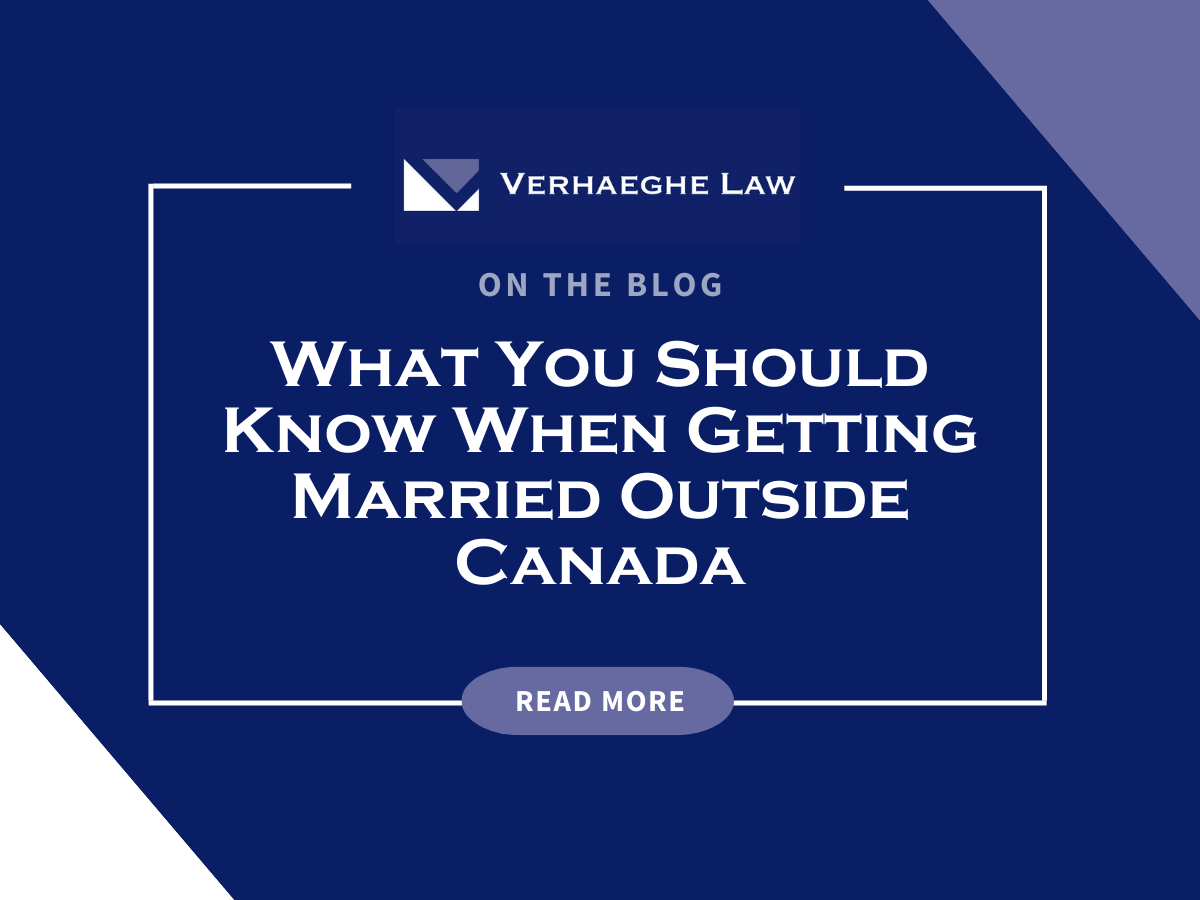
Most marriages performed legally in another country are valid in Canada, and do not require special registration when you return. However, whether you are planning a destination wedding, or are marrying a foreign national abroad, there are certain things you should know about initiating a marriage overseas .
For information specific to your circumstances, and for insights into how you might best plan for getting married outside Canada, contact our Edmonton family lawyers and schedule a consultation today.
Validating Your Marriage in Canada
In order for your marriage to be recognized within Canada, it must have been legal in the country where the union was established. Ensure that you and your spouse follow the legal requirements of a wedding, including any relevant documentation, as specific to the jurisdiction where you are getting married.
Your marriage must also be legal by Canadian federal law. In Canada, for instance, you are not permitted to marry a close relative by blood or adoption. While some countries allow polygamous marriages, in Canada you cannot legally be married to more than one person at the same time.
One of the most common roadblocks to initiating a legal marriage is the existence of a prior marriage that has not yet been dissolved. A marriage can be ended through annulment, divorce, or death. However, some countries have different laws surrounding the termination of a marriage, which may give you trouble. If you require assistance ending a pre-existing marriage, contact our Edmonton divorce lawyers today.
What If My Marriage Is Not Legal in a Foreign Country?
Countries have different laws surrounding what constitutes a marriage. The requirements for divorce may differ, and a person who may be recognized as single in Canada may still be considered married in another jurisdiction. Likewise, same-sex marriage is legal in Canada, but many countries still do not recognize it.
If you are planning to get married outside Canada as part of a destination wedding, it may be of benefit to ensure your marriage will be legal where it takes place. Alternatively, you may choose to get legally married in Canada and perform the ceremony abroad.
If you hope to sponsor your spouse to Canada, but your marriage is not considered legal where it occurred, you may still be eligible as conjugal or common-law partners. Contact our Edmonton family lawyers today to learn more.
How Marriage May Affect Citizenship
In some cases, marrying a citizen of another country may give you automatic citizenship in that country. Your Canadian citizenship will not be affected, and you will continue to be recognized as a Canadian citizen when you return.
Some countries do not recognize dual citizenship, and may not recognize you as a Canadian citizen after your marriage. This may mean the Canadian consulate in that country might not be able to help you should you need aid. In some countries, a spouse may restrict their partner’s ability to travel, and may also prevent you from seeking a separation or divorce.
For considerations specific to spousal sponsorship and other immigration concerns, contact our Edmonton immigration lawyers to set up a dedicated consultation.
Documents You May Need When Getting Married Outside Canada
Local authorities in the country where you are getting married may require you to provide specific documents to prove that you meet the requirements of that jurisdiction. Required may include, in any combination:
- Valid Canadian passport(s)
- Birth certificates
- Marriage search letter(s), as evidence that you are not already married
- A single status affidavit, which is a notarized document certifying that you are single
- Divorce certificate, if either you or your intended spouse have been previously married
- Death certificate for a former spouse, if either you or your intended spouse are widowed
- A certificate of non-impediment to marriage abroad, which confirms there is no objection to your intended marriage
- Premarital blood test certificate
- Statement of parental consent
Contact the consulate, high commission, or embassy of the country where you will be getting married. They should be able to provide you with a list of requirements specific to being married in that country.
Contact Our Edmonton Family Lawyers Today for a Consultation
If you are getting married outside Canada, there are specific steps you will need to take in order to ensure your union is recognized. Our Edmonton family lawyers are here to help you navigate the process from beginning to end. Contact us today to schedule your consultation and learn how we may be of service to you.
** Please note, this article is intended as a general overview on the subject of family law, and is not intended to be legal advice. If you are seeking legal advice, please consult with an Alberta family lawyer.
Comments are closed.
Language selection
- Français fr
Do I become a Canadian citizen when I marry a Canadian?
No. Marrying a Canadian citizen doesn’t give you citizenship.
If you want to become a Canadian citizen, you must follow the same steps as everyone else. There isn’t a special process for spouses of Canadian citizens.
You must meet several requirements to apply for citizenship . You must be physically present in Canada for at least 1,095 days during the 5 years right before the date you applied. This includes time as a
- permanent resident
- temporary resident (lawfully authorized to remain in Canada)
- protected person
Your Canadian spouse can sponsor you to become a permanent resident if you
- don’t live in Canada, or
- aren’t a permanent resident
You may apply for citizenship if you
- are a permanent resident
- have been physically present in Canada long enough
- meet the other requirements
There are different rules to determine if children of Canadians born outside Canada have Canadian citizenship .
For more information
Application processing times
Did you find what you were looking for?
If not, tell us why:
You will not receive a reply. Telephone numbers and email addresses will be removed. Maximum 300 characters
Thank you for your feedback
Answers others found useful
- What are the requirements for becoming a Canadian citizen?
- I already have a citizenship application in process. How will the 2015 changes to the citizenship legislation affect my application?
- How much does it cost to apply for Canadian citizenship?
- I am a citizen of another country. Will I lose that citizenship if I become a Canadian?
- What can I do if my citizenship application is refused?
- What should I do if I missed my citizenship test?
- Can I leave Canada after I mail my citizenship application?
- What is a non-routine citizenship application?
- Do I have to use the travel journal?
- If I’m applying for citizenship, do I still have to submit the physical presence calculator if I submit the travel journal?
- If I’m transferring through different countries at the airport, or by car or train, do I need to record it in my travel journal?
- How do I get more copies of the travel journal?
- My application has been returned, because it’s incomplete. Do I have to recalculate my physical presence (time lived in Canada)?

Form and guide
- Application for Canadian citizenship – Adult
- Application for Canadian citizenship – Minor applying with parent or guardian
- Application for Canadian citizenship – Minor applying alone
- Application for Canadian citizenship – Adopted person
- Application for Canadian citizenship – Stateless person born to a Canadian parent
- Application for Canadian Citizenship – Canadian Armed Forces
Glossary term
- Certificate of Canadian citizenship
- Prohibition
- Free Phone Consultation +1 (514) 989-9700
- Immigrate to Canada
- Canadian Experience Class
- Federal Skilled Worker (FSW) Program
- Federal Skilled Trades
- CRS Score Calculator
- Express Entry Draw
- Invitation to Apply
- Proof of Funds for Express Entry
- Express Entry Pool of Candidates
- Farm Stream
- Alberta Express Entry
- Alberta Accelerated Tech Pathway
- Alberta Opportunity Stream
- Graduate Entrepreneur Stream
- Foreign Graduate Entrepreneur Stream
- Skills Immigration Stream
- BC PNP Tech
- Entrepreneur Immigration Stream
- Skilled Workers in Manitoba
- Skilled Workers Overseas
- International Education Stream
- Business Investor Stream
- Express Entry Labour Market Stream
- Entrepreneurial Stream
- Post-Graduate Entrepreneurial Stream
- Skilled Worker Applicants with Employer Support
- New Brunswick PNP – Information Sessions
- Express Entry Skilled Worker Category
- Skilled Worker Category
- International Graduate Category
- International Entrepreneur Category
- International Graduate Entrepreneur Category
- Priority Skills NL: In-Demand Academic Path
- Priority Skills NL: In-Demand Work Path
- Express Entry
- Employer Driven
- Critical Impact Worker
- Skilled Worker
- Business Driven
- Entrepreneur
- Nova Scotia Demand: Express Entry (Closed)
- Nova Scotia Experience: Express Entry
- Entrepreneur Category
- Physician Stream
- Nova Scotia Labour Market Priorities
- Nova Scotia Labour Market Priorities for Physicians
- Occupations In Demand
- Ontario’s Express Entry Streams
- Employer Job Offer
- Masters Graduates
- PhD Graduates
- Regional Immigration Pilot
- PEI PNP Express Entry
- Business Impact
- Work Permit
- Labour Impact
- Skilled Worker in PEI
- Skilled Worker Outside Canada
- Critical Worker
- International Graduate
- International Skilled Worker
- Saskatchewan Experience
- Saskatchewan Entrepreneur and Farm
- Yukon Express Entry
- Business Nominee
- Yukon Community Pilot
- Immigrate to Quebec
- Regular Skilled Worker Program (RSWP)
- Quebec Experience Program (PEQ)
- Quebec Entrepreneur Program
- Quebec Investor Program
- Quebec Self-Employed Worker Program
- Certificat de Selection du Quebec (CSQ)
- Quebec Immigration FAQ
- Permanent Resident Card (PR card)
- Permanent Resident Card Renewal
- Permanent Resident Travel Document
- Residency Obligations
- Canadian Experience Class (CEC)
- Atlantic Immigration Program
- Rural and Northern Immigration Pilot
- Agri-Food Pilot
- Home Child Care Provider Pilot
- Home Support Worker Pilot
- Past Caregiver Programs
- Canada Immigration FAQ
- Moving to Canada from the USA
- Work in Canada
- Business Visitors
- Labour Market Impact Assessment (LMIA)
- Facilitated LMIA (Quebec) List of Occupations
- Canada Global Talent Stream (GTS)
- Intra-Company Transfers
- CUSMA (formerly called NAFTA) Work Permit
- CETA Work Permits
- Working with CSQ
- Post-Graduate Work Permit
- International Experience Canada
- Spouse Open Work Permit (SOWP) Canada
- Bridging Open Work Permit (BOWP) Canada
- Job Search Tool
- Social Media Presence Guide
- Canadian Resume Guide
- For Employers
- Study & Immigrate in Canada
- Canadian Designated Learning Institutions (DLI)
- Levels of Study
- Student Direct Stream (SDS) Canada
- Certificat d’acceptation du Quebec (CAQ)
- Refusals and Appeals
International Students in Canada
- Extend a Study Permit
- International Student Health Insurance in Canada
- Student Accommodation
- Work While Studying
International Students: Spouse and Family Dependent Visa
- Permanent Residence (PR) for international students
- Our International Student Program
Sponsorship
- Canada Sponsorship
- Inland Sponsorship
- Outland Sponsorship
- Spousal Sponsorship Quebec
- Child or Other Dependant Sponsorship
- Super Visa Canada
- Minimum Necessary Income (MNI)
- Canada Sponsorship FAQ
- Business Immigration
- Federal Investor Program (Terminated)
- Federal Venture Capital (Closed)
- Federal Entrepreneur Program (Terminated)
- Start-Up Visa Canada
- Federal Self-Employed
- Quebec Self-Employed
- About our Business Immigration Team
- Our Canadian Immigration Services
- Criminal Inadmissibility
- Temporary Resident Permit (TRP)
- Medical Inadmissibility
- Legal Opinion Letters
- DUI Convictions
- Criminal Rehabilitation
- Citizenship Requirements
- Citizenship Application
- Citizenship FAQ
- Canadian Economy
- Taxation in Canada
- Newcomers Services
- How to Find Accommodation in Canada
- Visitor Visa
- Business Visitor Visas
- electronic Travel Authorization (eTA)
- Canadian Immigration News & Updates
- Canadian Immigration Blog & Resources
- CLB Language Converter
- Visiting Canada Tool
- What is a NOC Code in Canada?
- How to Write a Reference Letter
- Educational Credentials Assessment (ECA) Guide
- Canadian Cover Letter Guide
- Canadim’s Employment Services
- Canadian Language Benchmark Guide
- Canadian Immigration Glossary
- See all guides & FAQs
- Refugees & Humanitarian
- Canadian Immigration Processing Fees
- Study in Canada
- Live as a student in Canada
Foreign nationals interested in studying in Canada who are married and/or have dependent children may wish to bring these family members with them to Canada during their study program. Canadian visa officers will consider study permit applications which include accompanying family members, but including family members on a study permit application may influence the visa officer’s decision.
Canadian study permits are temporary resident permits, meaning that the holder of a study permit must satisfy the visa officer that they will leave Canada when their permit expires. In some cases, if a student requests to bring their whole family with them to Canada, the visa officer might suspect that the student doesn’t really have the intention to leave Canada after their study program. This can affect the visa officer’s decision on whether or not to issue the study permit.
All study permit applicants are asked to submit a statement explaining why they want to pursue education in Canada. The applicant may use this section of the application to explain why they wish to have their spouse and/or children accompany them to Canada. The final decision on study permit approval is at the discretion of the immigration officer. Please note that it is possible for a person to apply for a study permit without their family members, but to later submit an amended application requesting authorization for family members to join them in Canada.
However, applying to amend an application in this way can result in misrepresentation, including a five year ban from Canada, if the applicant does not follow the correct procedures. Applicants must demonstrate sufficient financial resources to support themselves during their first year of study. Those who wish for their family members to accompany should be prepared to demonstrate additional funds to support their family. If an international student is accompanied by their spouse and/or dependent children, they should be aware of how this will affect their housing and health insurance needs.
Can I Bring my Spouse Under Student Visa In Canada?
A foreign national is welcome to include their spouse on their application for a Canadian study permit , keeping in mind the above-mentioned impacts this may have on the approval of the study permit. If a foreign national is approved for a study permit in Canada with their spouse accompanying, then the spouse will be eligible to apply for a spousal open work permit . This work permit will authorize the spouse to work full-time for any employer in Canada for the same period as their partner’s study permit. If both partners are interested in pursuing studies in Canada, they each must apply for separate study permits.
Documents Required for Student Spouse Visa
When applying for a student spouse visa to Canada, it is essential to ensure that all required documents are meticulously prepared and submitted. The following documents are typically necessary for a smooth application process:
- Visa Application Forms: Complete the appropriate visa application forms accurately. Ensure all sections are filled out correctly and truthfully.
- Passport: Provide a clear copy of your passport, ensuring it remains valid for the duration of your intended stay in Canada.
- Proof of Relationship: Include evidence establishing the legitimacy of your relationship with the student visa holder. This may include marriage certificates, photographs, or other supporting documents.
- Letter of Acceptance: Obtain and submit a copy of the official letter of acceptance from the educational institution where the primary applicant (student) has been accepted.
- Financial Proof: Demonstrate financial stability by providing proof of funds to cover living expenses and tuition fees. This could be in the form of bank statements, a sponsorship letter, or scholarship details.
- Language Proficiency: Depending on the specific requirements, you may need to provide proof of language proficiency through standardized tests like IELTS, CELPIP or TEF.
- Medical Examination: Undergo a medical examination from an approved panel physician. Include the medical examination report as part of your application.
- Police Clearance Certificate: Submit a police clearance certificate or a certificate of no criminal record from your home country or any other country where you have lived extensively.
The principal student applicant must also demonstrate evidence of financial support:
- It is crucial to show that you have sufficient funds to sustain both yourself and your spouse throughout your stay in Canada. Fortunately, the required financial threshold is not excessively high, given the assumption that your spouse will be employed in Canada, contributing to the financial well-being of the couple. Therefore, it is necessary for you to demonstrate that you possess ample funds to cover the expenses associated with your study program at the time of submitting your application.
Bring Your Dependent Children
Any parent applying to study in Canada is welcome to include dependent children on their study permit application . A dependent child, in Canadian terms, is any child under the age of 22, or over the age of 22 who has depended substantially on their parents for financial support since before the age of 22 and is unable to be financially self-supporting because of a mental or physical condition. If the study permit is approved with the accompanying child, then the child will be issued a visa authorizing their stay in Canada for the same duration as the parent’s permit.
Once inside Canada, all children 18 years and younger are allowed to study at Canadian elementary and secondary schools. The majority of Canada’s schools for children are public, meaning that there is no cost to attend. As well, Canada has a reputation as being a global leader in quality of education , so parents can rest assured knowing their children will be receiving the high-quality learning they deserve.
Canadian school system
All children in Canada are required, by law, to attend school. This includes the children of parents who are in the country temporarily to work or study themselves. Thankfully, due to Canada’s exceptional education system, children can benefit greatly from attending a Canadian institution.
The school system for children in Canada generally begins with elementary school and then progresses to high school (sometimes called secondary school). This system is composed of twelve grades, so a student begins with Grade One and spends one year completing each subsequent grade. Once a student completes Grade 12, they receive their high school diploma which makes them eligible to study at college or university .
Impacts on Study Permit Application
Being an international student in Canada may increase your eligibility for permanent residency for you and your family , or open the door to immigration programs that you weren’t previously eligible for.
Your experience studying, working, and practicing your English or French language proficiency can all contribute to your eligibility. Your partner’s experience working and improving their language proficiency can also contribute to your eligibility.
If you choose to immigrate to Canada permanently following the completion of your studies, you will likely do so through the federal Express Entry system. This system consolidates the three major categories of federal economic immigration and groups all eligible candidates into a pool together. Every candidate in the pool receives a Comprehensive Ranking System (CRS) score, and the highest-ranking candidates are periodically issued invitations to apply (ITA) for permanent residence.
Your CRS score is calculated differently depending on whether or not you are applying with an accompanying partner. If your partner has been living and working in Canada while you study, it’s possible that including them in your submission to Express Entry will increase your CRS score.
You can also double your chances of receiving an ITA if you and your spouse submit profiles to the Express Entry pool. Your partner’s experience may make them eligible to submit an expression of interest to Express Entry as a principal applicant.
Can me and my Family Stay in Canada After Studying as an International Student?
Frecuently asked questions, can an international student bring their parents to canada.
Unlike the process for applying for a spouse or dependent children visa, international students holding a study permit can extend invitations to their parent(s) for a Temporary Resident Visa (TRV) or an Electronic Travel Authorization (eTA). This enables parents to visit Canada and stay for up to 6 months. However, it’s important to note that this arrangement doesn’t grant parents a temporary resident visa, as is the case with spouses and children.
It’s important to remember that the final decision regarding the approval of a visitor visa rests with the discretion of the immigration officer.
Can my Girlfriend or Boyfriend Come With me to Canada?
This is a question frequently asked by international students in relationships that do not meet the criteria for common-law partnerships or marriage. It’s important to note that if the relationship doesn’t qualify as a common-law partnership or if the couple is not married, they won’t be eligible to apply for a dependent visa.
In such cases, your partner would need to rely on a temporary resident visa to come to Canada. Depending on their intentions in Canada, your girlfriend or boyfriend can apply for a visitor visa, a work permit, or a study permit. The choice depends on their specific purpose for visiting. However, if your partner doesn’t plan to work or study in Canada, they’ll need to apply for a temporary resident visa.
It’s essential to research whether your partner’s country of origin is visa-exempt. If it is, they won’t require a visa to enter Canada and can enter with an Electronic Travel Authorization (eTA).
Ready to start?
Free student assessment.
Let us help you become an international student in Canada! Complete our free student assessment and an academic counsellor from our International Student Program department will contact you to discuss your options.
Related Links
Spouse or common-law partner sponsorship, child or other dependent sponsorship, get your study permits.
Discover your Canadian immigration options. Get your free assessment now!
- Weird But True
- Sex & Relationships
- Viral Trends
- Human Interest
- Fashion & Beauty
- Food & Drink
trending now in Lifestyle

Conjoined twin Abby Hensel, of TLC's 'Abby & Brittany,' is...

My best friend demanded I pay $2.5K to attend their wedding, tip...

My 7-year-old daughter didn't listen to me — so I cut her hair

Florida woman left mortified after committing massive wedding...

'Oatzempic challenge' helped dieters lose 40 pounds in 2 months,...

I'm an airline 'nepo baby' — here's what it's like to travel...

Animal-lover rushes sick baby hedgehog to vet -- only to find out...

Here's the 'ridiculous' rule on cruise ships that travelers are...
Conjoined twin abby hensel, of tlc’s ‘abby & brittany,’ is now married to an army veteran.
- View Author Archive
- Follow on Twitter
- Get author RSS feed
Thanks for contacting us. We've received your submission.
Abby and Brittany Hensel, who documented their lives in a TLC reality series, have transitioned from a duo to a trio.
Abby, the left-side conjoined twin, married Josh Bowling, a nurse and United States Army veteran, in 2021. They live in Minnesota, where the Hensel twins were born and raised.
Abby and Brittany, 34, have been living private lives since their 8-episode show “Abby & Brittany” aired in 2012. But it’s been a happy life for them in Minnesota, where they were born and raised.
According to the “Today” show , which obtained marriage records for the spouses, the sisters are both fifth-grade teachers in their home state.

Abby and Josh kept their marriage under wraps from the public eye until 2023, when they shared photos of the wedding ceremony on their TikTok , @abbyandbrittanyhensel . A wedding guest’s resurfaced clip revealed an intimate moment from the lovebird’s wedding on Facebook .
A 20-second clip posted on Heidi Bowling’s Facebook captures the couple dancing and kissing at the wedding reception. Abby and her sister wore an all-white, sleeveless bridal gown and laced-back dress, while Bowling wore a grey suit.
Bowling is seen staring into his blushing bride’s eyes while Brittany supports her sister.

The duo originally appeared on “The Oprah Winfrey Show” in 1996, explaining their lives as conjoined twins.
They were born as dicephalus conjoined twins, a rare condition when two heads are on a single body with one genital system; two, three or four arms, two hearts and two legs.
The Helsen twins share a bloodstream and all organs below the waist. Abby controls their right arm and leg and Brittany controls the left side.

When Abby and Brittany were born in 1990, their parents, Patty and Mike Hensel, opted out of separation surgery because doctors said there was a small chance the girls would survive the operation, “Today” reported.
“How could you pick between the two?” their father Mike said, during a 2001 interview with Time magazine .
Keep up with today's most important news
Stay up on the very latest with Evening Update.
Thanks for signing up!
Please provide a valid email address.
By clicking above you agree to the Terms of Use and Privacy Policy .
Never miss a story.
Although they battle complications of life as conjoined twins, they haven’t let it slow them down from achieving benchmark goals such as passing their driver’s license test at 16, graduating from college, traveling to Europe and becoming educators.

So far, there’s word if they plan on expanding their family.
In the 2003 documentary “ Joined for Life ,” Abby and Brittany discuss the possibility of raising children one day.
“Yeah, we’re going to be moms,” Brittany said. “We haven’t thought about how being moms is going to work yet. But we’re just 16 — we don’t need to think about that right now.”
And the couple doesn’t have to rush adding children into their life because Abby’s husband has a child from a prior relationship, according to the Daily Mail .
Bowling’s Facebook page reveals how the blended family embraces each other with family photoshoots, an ice cream outing and celebrating the holidays.
Share this article:

Advertisement
Home Toggle navigation FR Toggle Search Search the site Search About us About us Head office Regional offices History Archives Background materials Photos and videos Accessibility Contact us Corporate governance Board of Directors Governing Council and Senior Management Governance documents Educational resources The Economy, Plain and Simple Explainers Financial education resources Careers Take a central role at the Bank of Canada with our current opportunities and scholarships.
The productivity problem
Senior Deputy Governor Carolyn Rogers talks about some of the reasons for Canada’s poor productivity track record, and what we can do to turn the tide.
Watch Senior Deputy Governor Rogers speak to the Halifax Partnership by webcast. Read the full speech.
A healthy economy depends on high productivity
Strong productivity—which leads to faster growth, more jobs and higher wages—is an important way to protect the economy from the risks of high inflation.
Canada has seen no productivity growth in recent years. And over the past four decades, we have actually slipped significantly compared with some other countries. In fact, relative to the United States, among G7 countries we are now second only to Italy when it comes to productivity decline.
This is important because a number of factors threaten to drive inflation persistently higher in the future. These include global trade tensions, changing demographics and the economic impacts of climate change. We need to ramp up our productivity now, as a buffer against these and other forces down the line.
What’s behind highly productive economies
Three elements contribute to stronger productivity:
- capital intensity—giving workers better physical tools like machinery, and using new technologies to improve efficiency and output
- labour composition—improving workers’ skills and training
- multifactor productivity—using capital and labour more efficiently
Considering these, there are two basic strategies to improve productivity: focus the economy on industries that add greater value, and be more efficient with the work we’re currently doing. Canada generally hasn’t performed well on either front. This needs to change if we want to ensure a stable and prosperous economy for everyone.
The bottom line is that the benefits from raising productivity are there no matter what your role is: for workers, for businesses and, yes, for central bankers, too.”
Canada needs to do better
When we look at the factors that drive high productivity, we see some clear areas for improvement.
Canada can focus more on making sure the training and education we provide teach the skills we need for jobs today and in the future. This includes post-secondary learning and apprenticeship programs that better respond to what employers are looking for. It also involves leveraging the skill sets of the many new Canadians who immigrate here.
A more competitive business environment would also help drive greater innovation and efficiency. This is particularly important for small and medium-sized businesses that can’t take advantage of the economies of scale afforded to larger companies.
Perhaps most importantly, Canada’s investment levels are nowhere near as high as they should be in the areas of machinery, equipment and intellectual property. In fact, investment levels have decreased over the past decade.
Everyone has a role to play in encouraging a strong investment climate that will help boost productivity. With stronger productivity, everyone can enjoy robust growth and better wages without high inflation. And in a healthy economy, we are better positioned to manage inflationary pressures without having to rely so much on raising interest rates.
At the Bank of Canada, we will keep working to provide the stability that’s most conducive to risk taking and investment. With governments providing the right policy background, and with the business community doing its part to invest, together we will all be able to help Canada’s economy to grow—and Canadians to prosper—in the years ahead, no matter what surprises may come.”
View this post on Instagram A post shared by Bank of Canada (@thebankofcanada)
You might also like
Getting back to stable prices and a balanced jobs market, going digital has helped the economy through covid-19, on this page table of contents.
We use cookies to help us keep improving this website.
Baltimore Port: What impact will bridge collapse have on shipping?

PORT FEATURES
Current status of cargo ships inside port, cruise ships, london metal exchange warehouses, bunker fuel.
Get weekly news and analysis on the U.S. elections and how it matters to the world with the newsletter On the Campaign Trail. Sign up here.
Reporting by Josephine Mason, Nick Carey, Helen Reid, Jonathan Saul, Nigel Hunt, Marwa Rashad, Scott DiSavino, Shariq Khan and Eric Onstad; Compiled by Josephine Mason and Nina Chestney; Editing by Nick Macfie and Nick Zieminski
Our Standards: The Thomson Reuters Trust Principles. , opens new tab

Protesters interrupt Biden, Obama, Clinton at $25 million New York fundraiser
President Joe Biden and his Democratic predecessor, Barack Obama, headlined a star-studded fundraiser with former President Bill Clinton on Thursday, offering a robust defense of the White House's handling of the Gaza crisis as protesters interrupted the event.
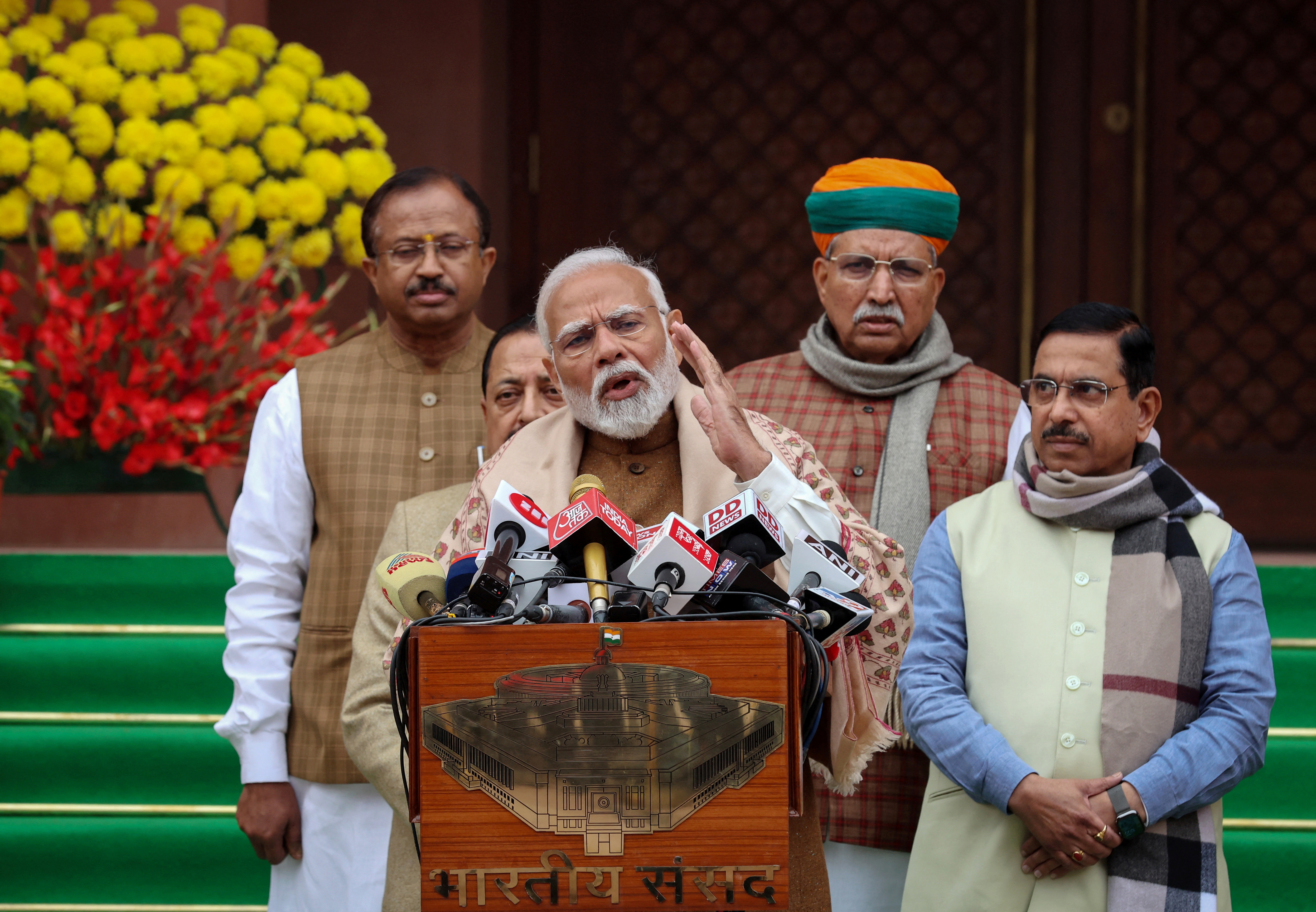
Ukraine's energy facilities were the target of an overnight Russian missile and drone attack in which thermal and hydro power plants were damaged, Ukrainian power grid operator Ukrenergo said on Friday.

Catch the snow at these spots in the San Gabriel Mountains — while supplies last
- Show more sharing options
- Copy Link URL Copied!
Since moving to Los Angeles in 2018, I’ve kept up an important annual tradition: getting my feet into snow. Fortunately, I’ve never had to travel far to do it. When winter and early spring rains come to the Southland, the San Gabriel Mountains above L.A. get plastered with powder (cue incredible vistas ). They say in Los Angeles that you can catch some waves at the beach in the morning and then hit the ski slopes in the afternoon. Unlike many things people say about our city, this one is actually true — and absolutely worth doing.
You are reading The Wild newsletter
Sign up to get expert tips on the best of Southern California's beaches, trails, parks, deserts, forests and mountains in your inbox every Thursday
You may occasionally receive promotional content from the Los Angeles Times.
I recently made my winter pilgrimage to the San Gabriels, and it was a classic sun and snow experience. I woke up to a mild and sunny L.A. spring morning, took my dog for a walk and then packed up my snowshoes, snow pants and backpack. After a quick stop for breakfast at Bub and Grandma’s in Glassell Park and an hour or so of driving up Angeles Crest Highway, I found the snow.

It emerged gradually, first in small patches along the road and then in glimpses of white peaks catching the morning light. When I pulled off the pavement near Waterman Mountain, I was in a different world. All around me, the slopes were blanketed in snow. Thick gray clouds scudded overhead, dumping flakes and dusting everything with a fresh coat of powder. Breaks in the clouds created roving patches of sunlight that lit up the frosty ground and cast long shadows from the towering pine trees.
I pulled on my gear — in addition to snowshoes, snow pants and a backpack with water and snacks, I always pack boots, gloves, a warm hat and an insulated jacket — and headed out on the Waterman Mountain trail, one of my favorite routes for wintertime exploring. Although I’ve hiked and snowshoed here several times before, it’s always interesting to see how winter transforms the landscape. The trail was barely visible under the snow (good thing I had a map on my fully charged phone), and I passed several creeks roaring with snowmelt. When I’m snowshoeing, I don’t have any goal in mind — instead of aiming for a summit, I slow down and take my time. I try to soak in my surroundings, knowing that in a month or so this snowy scene will likely be gone.

Although we’re now officially into spring, there’s still time to get your wintertime fix in the San Gabriels. If you go, check the weather first, as conditions in the mountains are very different from what’s happening in the city. Fill up your car’s gas tank, and be aware that Angeles Crest Highway is partly closed, so you’ll need to detour around the closure to get to higher elevations.
When I ventured into the mountains in mid-March, the snow coverage started around 7,000 feet. For the latest info, the National Operational Hydrologic Remote Sensing Center has a great interactive map that shows the snow depth in the San Gabriels.
I began my snowshoe trip at the Waterman trailhead , though you can also drive farther on Angeles Crest Highway and park at the Kratka Ridge parking area or at Islip Saddle (the road is closed past that). Bring an Adventure Pass ; it’s required to park at Waterman and Islip Saddle.

Prefer to ski or snowboard? You’re in luck. The Mt. Waterman ski area opened this month (call 818-790-2002 to check if they’re running before visiting) and Mt. Baldy and Mountain High are also reliable destinations for skiing in the San Gabriels. Make sure to check their websites before heading up, as their operating hours can change depending on the weather.
3 things to do
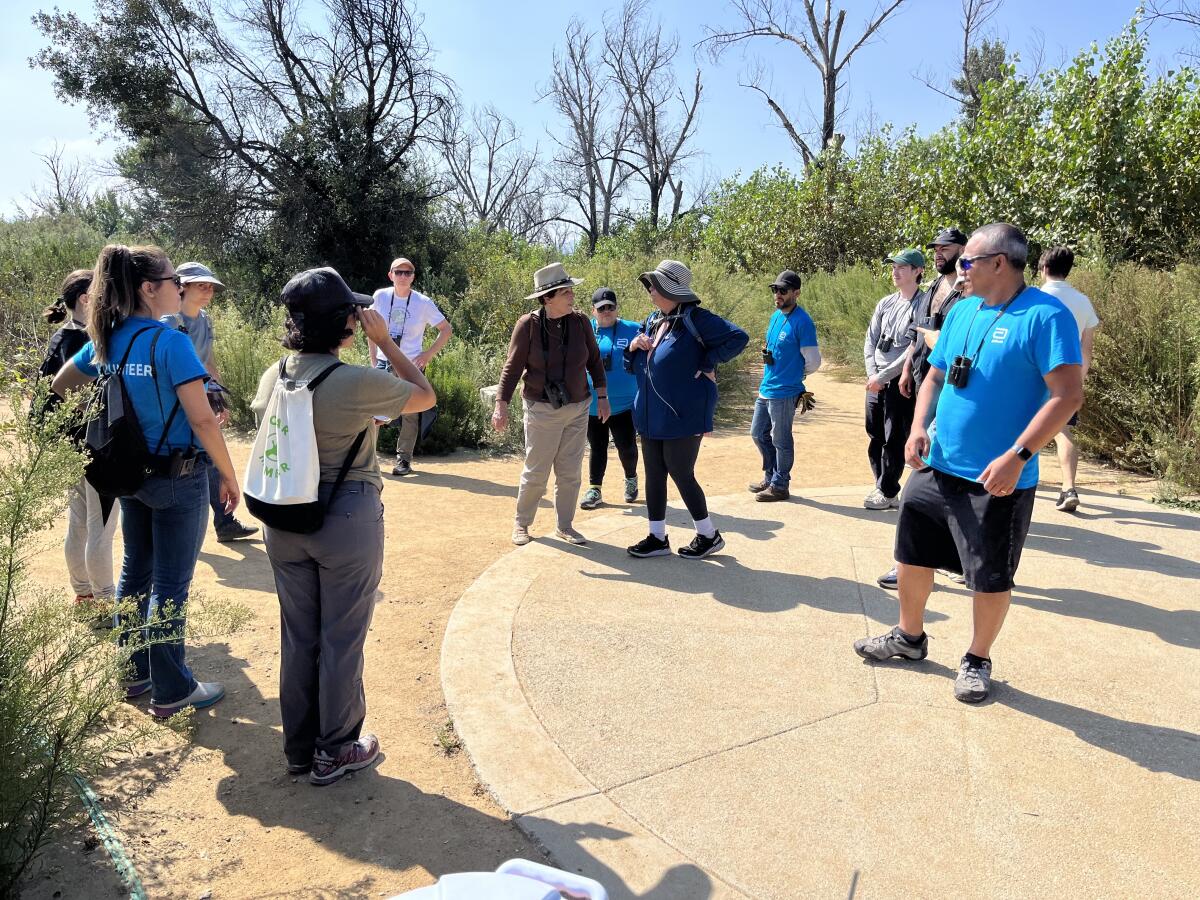
1. Learn the secrets of our local ecosystem in Van Nuys Friends of the L.A. River will guide you through the winding paths and hidden groves of the Sepulveda Basin Wildlife Reserve, a flood control basin that’s teeming with local wildlife and plants. As you wander through the trails on the 1½-hour walk, an educator will recount interesting stories behind each creature and plant that crosses your path. Occasionally, they’ll also pause to lead mindfulness practices along the way. Attendees should bring a water bottle, insect repellent and attire that takes into account the rainy weekend forecast. Check-in begins at 9 a.m. Friday. The event is free, but you’ll have to reserve a spot, and take note of the event’s detailed navigation tips at eventbrite.com .
2. Meditate among plants in Santa Monica Get centered among the lush greenery of Merrihew’s Sunset Gardens, a nursery full of California natives and many other beautiful plants that’s been part of the Westside community for more than 75 years. Yoga teacher and plant lover Jess Mack will be leading a one-hour meditation that weaves in “plant facts and revelations.” The event starts 9 a.m. Satuday. Tickets are $15 each, and you can buy them at eventbrite.com .
3. Gaze at the partial solar eclipse in Thousand Oaks For those of us who haven’t booked a weekend in Mexico at a beachfront resort to witness the total solar eclipse, there’s still an opportunity to celebrate the rare phenomenon here in California. Irene Shabazi Rowland — a former elementary school teacher who practices nature-informed acupuncture and forest therapy — will be hosting a wellness walk at Wildwood Regional Park during the approximate two-hour window in which the moon passes between the Earth and the sun and casts a shadow onto the big blue marble we call home. Though Southern California won’t be in the so-called path of totality, you’ll still be able to see a partial eclipse. Rowland will lead you on a two-mile hike with the goal of relaxing, recharging and connecting with nature, and end the outing with a tea ceremony. Attendees are encouraged to bring their own sun protection gear, including a hat, sunscreen and those dorky eclipse glasses — as well as a lawn chair to maximize comfort. The event is free and kicks off in the Wildwood Park parking lot at 10 a.m. April 8. You can sign up at eventbrite.com .
The must-read
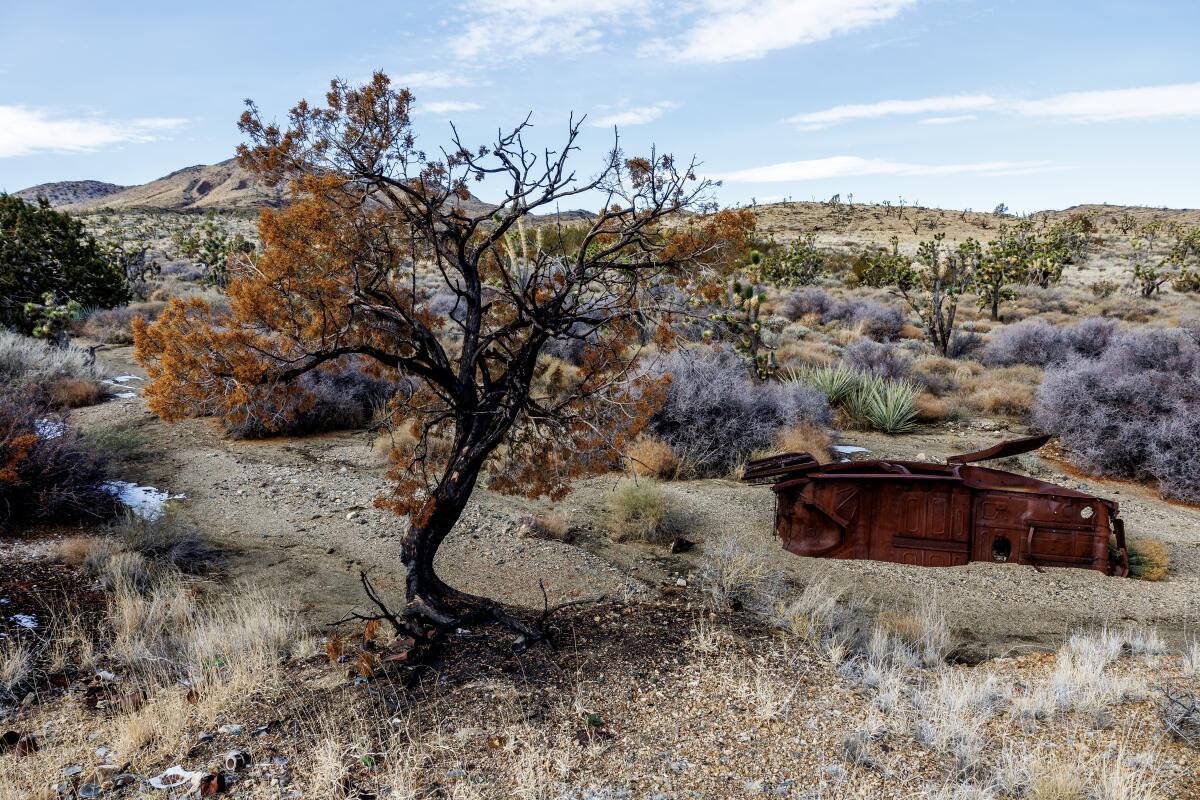
Lately I’ve been thinking a lot about Alex Wigglesworth’s story on wildfires and their effect on the Mojave Desert. The desert has seen an unusual amount of fire in the last few years, and with climate change bringing drought and erratic precipitation patterns, experts predict flames will become even more prevalent. But fire wasn’t always so rare here. Before the arrival of white settlers, the Mojave was covered in native grasses, and the region experienced fires on a regular basis. Check out the article for a deeper look at how researchers and land managers are trying to understand fire’s natural role in a desert landscape that has changed drastically — and continues to evolve with each passing year.
Happy adventuring,

In the spring, wildflowers get all the attention , but this is a great time of year for clouds too. Rain showers and even rare coastal thunderstorms are creating all kinds of interesting shapes in the sky. As you’re going about your day, make sure to look up.
For more insider tips on Southern California’s beaches, trails and parks, check out past editions of The Wild . And to view this newsletter in your browser, click here .
Sign up for The Wild
We’ll help you find the best places to hike, bike and run, as well as the perfect silent spots for meditation and yoga.

Michael Charboneau is a freelance writer covering gear and the outdoors, and he’ll be writing The Wild newsletter for the next few months. He has written for a variety of publications, including Men’s Journal, Runner’s World and InsideHook, and he lives in West L.A. When he’s not writing, he can be found running, hiking and biking around Los Angeles and its mountains.
More From the Los Angeles Times
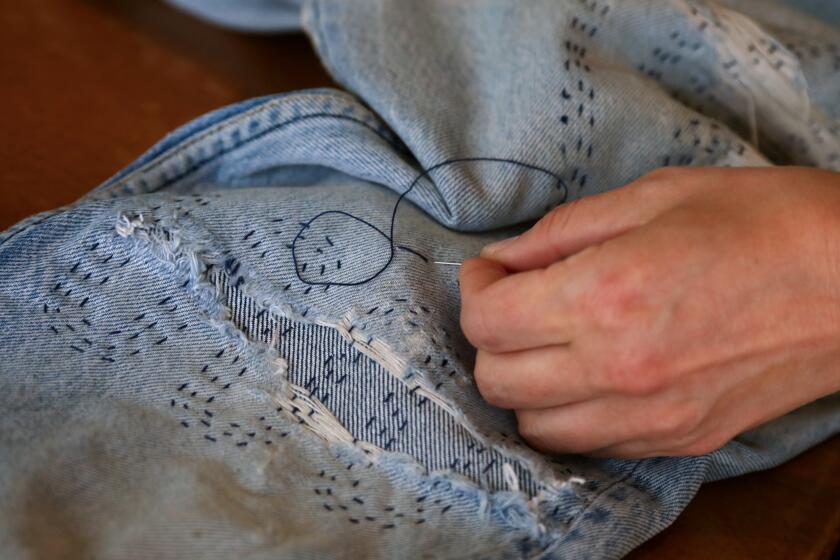
Travel & Experiences
They escaped a world of fast fashion to teach L.A. how to give old clothes new life
March 28, 2024

A guide to L.A.’s most overlooked design legacy: Streetlights
March 27, 2024
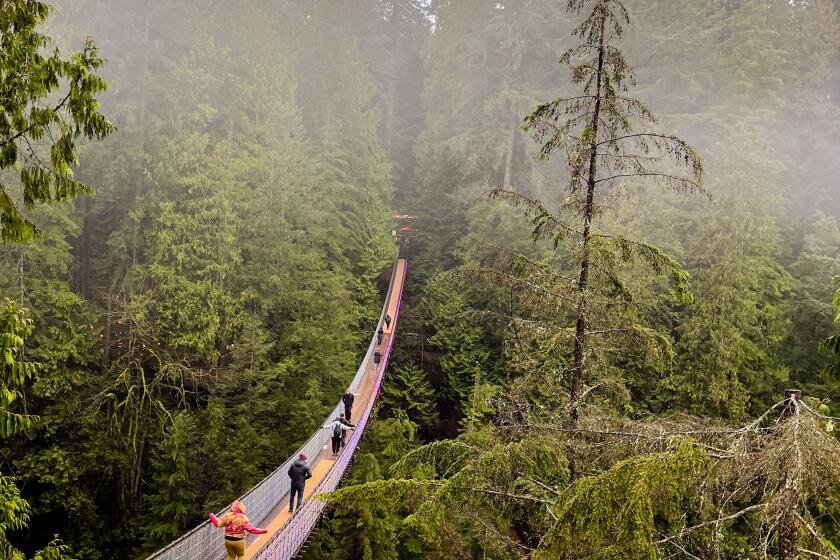
14 glorious things to do in Vancouver, the ‘California of Canada’
March 26, 2024

3:30 a.m. alarms, coffee and a quest to find the greatest sunrise spots in Joshua Tree
March 25, 2024
Advertisement
Supported by
A Total Solar Eclipse Is Coming. Here’s What You Need to Know.
These are answers to common questions about the April 8 eclipse, and we’re offering you a place to pose more of them.
- Share full article

By Katrina Miller
On April 8, North America will experience its second total solar eclipse in seven years. The moon will glide over the surface of our sun, casting a shadow over a swath of Earth below. Along this path, the world will turn dark as night.
Skywatchers in Mexico will be the first to see the eclipse on the mainland. From there, the show will slide north, entering the United States through Texas, then proceeding northeast before concluding for most people off the coast of Canada.
Why eclipses happen is simple: the moon comes between us and the sun. But they are also complicated. So if you’ve forgotten all of your eclipse facts, tips and how-to’s since 2017, we’re here to explain it for you.
But before we dive in, there is one thing to know that is more important than anything else: It is never safe to look directly at the sun during an eclipse (except for the few moments when the moon has fully obscured its surface). At all other times, watch the event through protective eye equipment . Read on to learn about how to watch an eclipse safely.
What is a total solar eclipse?
A solar eclipse occurs when the moon orients itself between Earth and the sun, shielding the solar surface from our view.
In cosmic terms, it is unusual that this happens: the moon is about 400 times smaller than the sun, but it is about 400 times closer to us. That means that when these two celestial bodies are aligned, they appear to be the same size in the sky.
What other types of eclipses are there?
Annular solar eclipses occur when the moon is farther from Earth and appears too small to completely shield the sun’s surface. Instead, the outer part of the solar disk remains uncovered — a “ring of fire” in the sky.
Partial solar eclipses happen when Earth, the moon and the sun are imperfectly aligned. The moon only obscures a chunk of the sun. There will be two in 2025.
Earth can also get between the moon and the sun, creating a lunar eclipse. This can be observed once or twice a year .
How dark will it be during the eclipse?
In any given place along the eclipse path , the event will last around two hours or more.
The event will commence with a partial solar eclipse, as the moon takes a small bite out of the sun’s edge, then consumes more and more of its surface. According to NASA , this can last anywhere from 70 to 80 minutes.
The phase of the eclipse where the moon has completely blocked the sun’s surface is called totality. This is the only time the event can be viewed with the naked eye.
The length of totality varies by location. In April, some places will experience this phase for more than four minutes; others, for only one to two minutes.
During totality, the sky will get dark as night and the temperature will drop. Wispy white strings of light from the sun’s outer atmosphere, or corona, will suddenly be visible. Lucky viewers may even spot a thin, reddish-pink circle around the edge of the moon. That’s the chromosphere, an atmospheric layer below the sun’s corona. Its color comes from the presence of hydrogen throughout the layer.
After totality, the sun will slowly peek out from behind the moon again — another partial eclipse that will last the same amount of time as the first one. The moon will recede until the sun is back to normal brightness in our sky.
How can I watch the solar eclipse safely?
In general, avoid looking directly at the sun without special equipment to protect your eyes. Inexpensive options for watching the eclipse include paper solar viewers and glasses. If you are using equipment purchased for a past solar eclipse, make sure to inspect it. Toss anything with scratches or other signs of damage.
According to NASA , it is not safe to look at the sun through any optical device while using paper glasses or viewers. To watch the eclipse through cameras, binoculars or telescopes, buy a special solar filter.
The only time you can view a solar eclipse with the naked eye is during the moments of totality. Once the moon begins to reveal the surface of the sun again, return to watching the event through protective equipment to avoid injury.
What happens if I look at the eclipse without protection?
In general, staring directly at the sun, even for a few seconds, can cause permanent damage to your eyes . This can range from blurry or distorted vision to something even more serious, like blind spots. Because there are no pain receptors in the retina, you won’t feel it while it’s happening.
The same is true during an eclipse — except during the brief moments of totality, when the moon has hidden the face of the sun. At all other times, use protective eye equipment to view the event.
What do I do if I can’t find eclipse glasses?
If it’s too late to get glasses or viewers, there’s always a do-it-yourself option: a pinhole camera to indirectly experience the eclipse. You can create one using cardstock , a cardboard box , a kitchen strainer or even your fingers . These designs project an image of the eclipse onto the ground or some other surface that is safe to look at.
Where are the best places to watch the eclipse?
The total eclipse will sweep across large portions of Mexico, the United States and eastern Canada. For the most dramatic show, it’s best to experience the eclipse along the path of totality , which is where the moon will completely blot out the sun.
The Path of the Eclipse
On April 8, a total solar eclipse will cross North America from Mazatlán, Mexico, to the Newfoundland coast near Gander, Canada. Viewers outside the path of the total eclipse will see a partial eclipse, if the sky is clear .

Percentage of
the sun obscured
during the eclipse
Indianapolis
Little Rock
San Antonio

Viewers near Mazatlán, a beach town on the Pacific shoreline of Mexico, will be the first place to experience totality on North America’s mainland. Various sites in Mexico along the eclipse’s path will experience the longest duration of totality — as long as four minutes and 29 seconds.
Cities across the United States, including Dallas, Indianapolis and Cleveland, will most likely be hot spots for the upcoming eclipse. Other notable locations include Carbondale, Ill., which also saw totality during the solar eclipse in 2017; small towns west of Austin, Texas, which are projected to have some of the best weather in the country along the eclipse path; and Niagara Falls, if the skies are clear. Six provinces of Canada are in the path of totality, but many of them have a very cloudy outlook.
When does the eclipse begin and end?
The show begins at dawn, thousands of miles southwest of the Pacific shore of Mexico. The moon starts to conceal the sun near Mazatlán at 9:51 a.m. local time. Viewers near Mazatlán will experience totality at 11:07 a.m. for four minutes and 20 seconds.
Then the moon’s shadow will swoop through Mexico, crossing over the Texas border at 1:10 p.m. Eastern time. Totality in the United States will start at 2:27 p.m. and end at 3:33 p.m. Eastern time.
Canadians will experience the solar eclipse in the afternoon for nearly three hours. The eclipse concludes beyond Canada’s boundaries when the sun sets over the Atlantic Ocean.

How long will the eclipse last?
The duration of totality depends on how far a given location on Earth is from the moon. Places with the longest totality are closest to the moon and farther from the sun. The speed of the lunar shadow is slowest over spots with the longest totality.
In April, the longest period of totality will occur over Durango, a state in Mexico, for a total of four minutes and 29 seconds. Along the centerline, the location of shortest totality on land is on the eastern coast of Newfoundland and Labrador in Canada, for about two minutes and 54 seconds. But totality is even shorter along the edges of the total eclipse path; in some places, it lasts less than a minute.
How fast does the eclipse move?
Solar eclipses may seem to happen slowly, but the moon’s shadow is racing across the surface of Earth. Exact speeds vary by location. Eclipse calculators estimate the shadow will move between about 1,560 m.p.h. and 1,600 m.p.h. through Mexico, and more than 3,000 m.p.h. by the time it exits the United States. The eclipse will reach speeds exceeding 6,000 m.p.h. over the Atlantic Ocean.
When was the last total solar eclipse in the United States?
According to the American Astronomical Society , total solar eclipses happen once every year or so, but they can only be viewed along a narrow path on Earth’s surface. Many occur over water or other places that can be difficult to reach. A given location will experience totality once in about 400 years.
But some places get lucky: Carbondale, a college town in southern Illinois, saw the total solar eclipse in the United States on Aug. 21, 2017, and will experience another one this April. San Antonio experienced an annular eclipse last October, and is also in the path of totality for this year’s eclipse.
Do other planets experience solar eclipses?
Yes, any planet in our solar system with a moon can experience a solar eclipse. In February, a Martian rover captured Phobos , one of the red planet’s moons, transiting the sun.
The moons on other planets, though, appear either smaller or larger than the sun in the sky . Only Earth has a moon just the right size and at just the right distance to produce the unique effects of totality.
How will things on Earth change during the eclipse?
As the eclipse approaches its maximum phase, the air will get cooler, the sky will grow dimmer, shadows will sharpen and you might notice images of crescents — tiny projections of the eclipse — within them. Along the path of totality, the world will go dark while the moon inches toward perfect alignment with Earth and the sun.
Animals will also react to the solar eclipse. Bees stop buzzing , birds stop whistling and crickets begin chirping. Some pets may express confusion . Even plants are affected, scientists found after the solar eclipse in 2017 . They have diminished rates of photosynthesis and water loss similar to, though not as extreme as, what happens at night.
What if I can’t get to the path of totality?
Viewers in locations away from the eclipse path will see the moon partially blot out the sun, though how perceptible the effects are depends on the site’s distance from the centerline. (The closer you are, the more remarkable it will be.) Still, it won’t be quite like experiencing the eclipse during totality.
Remember that you should always wear protective eye equipment while watching a partial eclipse.
If you can’t make it to the path of totality but still want to experience it, many organizations are providing live video streams of the eclipse, including NASA and Time and Date . The Exploratorium, a museum in San Francisco, will also offer a sonification of the eclipse and a broadcast in Spanish.
What have we learned from solar eclipses?
In the 1800s, a French astronomer discovered the element helium by studying the spectrum of sunlight emitted during an eclipse. These events also allowed the first scientific observations of coronal mass ejections — violent expulsions of plasma from the sun’s corona — which can cause power outages and communication disruptions on Earth. Scientists also confirmed Einstein’s theory of general relativity, which says that massive objects bend the fabric of space-time, during a solar eclipse in 1919.
And there is more to discover. This April, NASA plans to fly instruments on planes to capture images of the solar corona, and launch rockets to study how the drop in sunlight during an eclipse affects Earth’s atmosphere. A radio telescope in California will try to use the moon as a shield to measure emissions from individual sunspots .
The public is joining the fun, too. During the eclipse, a team of ham radio operators will beam signals across the country to study how solar disturbances can affect communications. Some people along the path of totality will record sounds from wildlife . Others will use their phones to snap pictures of the eclipse to help sketch out the shape of the solar disk .
An earlier version of this article referred imprecisely to eclipse on other worlds. Some appear larger than the sun in sky, they are not all partial eclipses.
How we handle corrections
Katrina Miller is a science reporting fellow for The Times. She recently earned her Ph.D. in particle physics from the University of Chicago. More about Katrina Miller

IMAGES
VIDEO
COMMENTS
Marriage; Can I get married in Canada on a Visitor Visa? Yes, it is possible to get married in Canada as a visitor or on a temporary resident visa. ... If you are under 18 years old you can get married but you must have written consent from your parents or legal guardians. You may marry someone of the same or opposite sex. Same-sex marriages ...
You can wed a man or woman of the same sex as you. Since 2003 and 2005 throughout the entire country of Canada, same-sex weddings (marriages between two men or two women) have been lawful in Ontario. Close relatives by blood or adoption are not permitted (grandparent-grandchild, parent-child, brothers-sisters).
Since 2015, the Canadian federal law declared 16 yrs as the minimum age requirement for getting married in Canada. However, 18 or 19 is the minimum age of marriage in different Canadian provinces or territories. Therefore, minors under this age need parental or court consent to get married. Physical Presence
Marriage is a legal contract in Canada governed by federal and provincial laws. Same-sex marriage has been legal in Canada since 20 5. However, marriage laws can vary by province or territory, so it's essential to check the specific requirements and regulations of the province or territory where you plan to get married. Marriage In Canada ...
What your boyfriend should do is remove himself from his mother's application. Again, he no longer meets the requirement to be included as a dependent. The two of you should then work to qualify for PR as a couple through an economic immigration stream like Express Entry. F.
Getting married in Canada is a beautiful and memorable experience, and understanding the legal requirements is an essential aspect of the planning process. From obtaining a marriage license to ensuring proper documentation, navigating the legal landscape ensures that your union is not only celebrated with love but also recognized under the law.
Age: U.S. citizens heading to Canada for marriage must be at least 16 years old. However, all couples under 18 can only get married if their parents or legal guardians provide written consent. Otherwise, you must wait until age 18 to get married without parental consent.
Even though you can get married on a tourist visa in Canada, you still need to be go through the paperwork associated with getting the marriage license and certificate. The first step towards this would be applying for a marriage license in the area where you intend to marry in Canada. You can apply at any Registry Services office or in some ...
For marriages that took place in Canada on or after June 19, 2015. the minimum age for marriage is 16 (as per section 2.2 of the Civil Marriage Act) parental consent must be provided when one or both spouses are between 16 years old and the age of majority of the province or territory where the marriage took place. The age of majority is 19 in.
Most times Canadians need to be in Canada in order to sponsor their spouse or common-law partner for permanent residence, but not always. Immigration, Refugees and Citizenship Canada (IRCC) allows Canadian citizens to apply to sponsor their spouses, common-law partners, dependent children and conjugal partners from abroad.However, they have to prove that they will move back to Canada when ...
Who can get a visa. You must meet some basic requirements to get a visitor visa. You must: have a valid travel document, like a passport. be in good health. have no criminal or immigration-related convictions. convince an immigration officer that you have ties—such as a job, home, financial assets or family—that will take you back to your ...
Meagan on 11 Jul 2016 - 08:40. Hi Alfred, Congratulations on your upcoming wedding. Yes, foreigners are allowed to get married in Canada. In order to get Canadian citizenship, your spouse (assuming he/she is a Canadian citizen) would need to sponsor you. To do this, they would first determine their eligibility according to the requirements on ...
Here's how to get married in Canada and where to get a marriage license. It involves a bit of paperwork and a fee, but it's really no biggie, as long as you have the appropriate documents and meet the legal requirements (such as being the minimum age). The details differ from one province to another, so click on the appropriate link below ...
Steps Involved to Get Married in Canada on a Visitor's Visa You must apply for your marriage certificate within one year of getting married. Every province has its requirements and criteria regarding marriages in Canada. Here are some steps you are required to follow to get married in Canada. These are-Choose an Officiant
General information. You cannot get married at a Canadian embassy or consulate in a foreign country. Canadian consular officials do not perform marriage ceremonies, and they do not have to attend your marriage. Marriages that are legally performed in a foreign country are usually valid in Canada, and you do not need to register them in Canada.
You can sponsor your spouse, common-law partner, or conjugal partner who is at least 18 years old. You must be a Canadian citizen, a permanent resident of Canada, or a person registered in Canada as an Indian under the Canadian Indian Act. You must also be at least 18 years old. Whenever you sponsor a family member to Canada, you must sign an ...
Canada is a country where one can avail easier regulations in case of marriage. In 2005, Canada became one of the few countries in the world to legalize same-sex marriage. It is the fourth country in the whole world to allow same-sex marriage. Since then, many same-sex couples from abroad have visited Canada to get married because […]
Requirements vary according to the province or territory a person wishes to get married in. For example, in Ontario persons wanting to get married (without parental consent) must be at least 18 years old and in British Columbia they must be at least 19 years old. With parental consent (from both parents) it is possible to get married at 16 or ...
An Ontario case management master. Step 2: Get your marriage license or Church Banns. You either need a marriage license or a church banns to get married in Ontario. Please note that if someone has been previously married, they cannot obtain a church banns and must get a marriage license instead.
Likewise, same-sex marriage is legal in Canada, but many countries still do not recognize it. If you are planning to get married outside Canada as part of a destination wedding, it may be of benefit to ensure your marriage will be legal where it takes place. Alternatively, you may choose to get legally married in Canada and perform the ceremony ...
No. Marrying a Canadian citizen doesn't give you citizenship. If you want to become a Canadian citizen, you must follow the same steps as everyone else. There isn't a special process for spouses of Canadian citizens. You must meet several requirements to apply for citizenship. You must be physically present in Canada for at least 1,095 days ...
1. Get your Alberta marriage license. The very first step to getting married is applying for a marriage licence. This can be done through your local registry agent office in Alberta. Our Banff Wedding in the summer. You will need to provide identification and proof of citizenship, as well as pay the required fee.
The applicant may use this section of the application to explain why they wish to have their spouse and/or children accompany them to Canada. The final decision on study permit approval is at the discretion of the immigration officer. Please note that it is possible for a person to apply for a study permit without their family members, but to ...
Abby, the left-side conjoined twin, married Josh Bowling, a nurse and United States Army veteran, in 2021. They live in Minnesota, where the Hensel twins were born and raised. Abby and Brittany ...
Three elements contribute to stronger productivity: capital intensity—giving workers better physical tools like machinery, and using new technologies to improve efficiency and output. labour composition—improving workers' skills and training. multifactor productivity—using capital and labour more efficiently.
A major bridge collapsed in the U.S. port of Baltimore in the early hours of Tuesday after being struck by a container ship, plunging cars into the river below.
The Mt. Waterman ski area opened this month (call 818-790-2002 to check if they're running before visiting) and Mt. Baldy and Mountain High are also reliable destinations for skiing in the San ...
The Francis Scott Key Bridge was opened in 1977 and carried more than 12.4 million vehicles last year. The bridge was one of the three major ways to cross the Patapsco River and formed part of ...
Leer en español. On April 8, North America will experience its second total solar eclipse in seven years. The moon will glide over the surface of our sun, casting a shadow over a swath of Earth ...